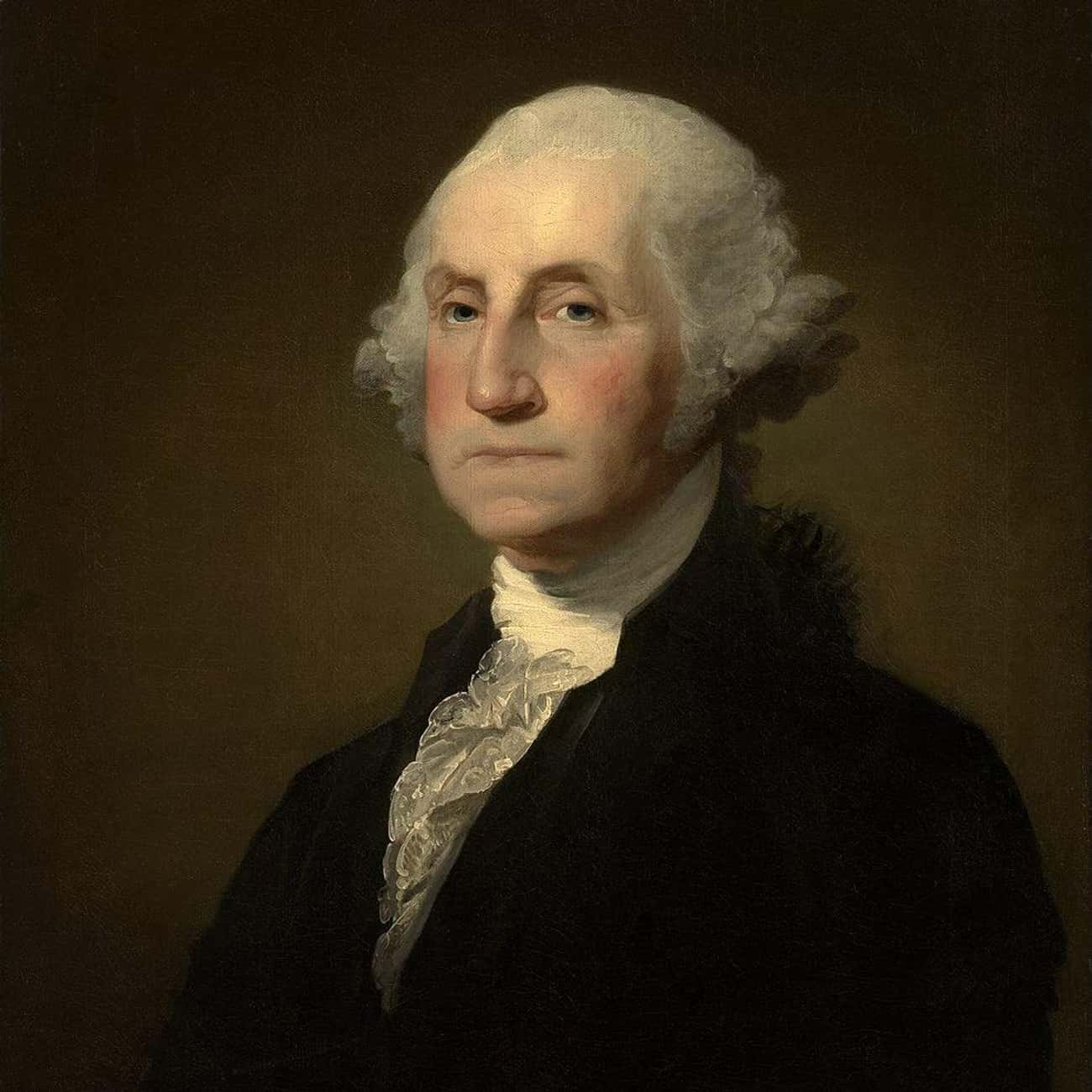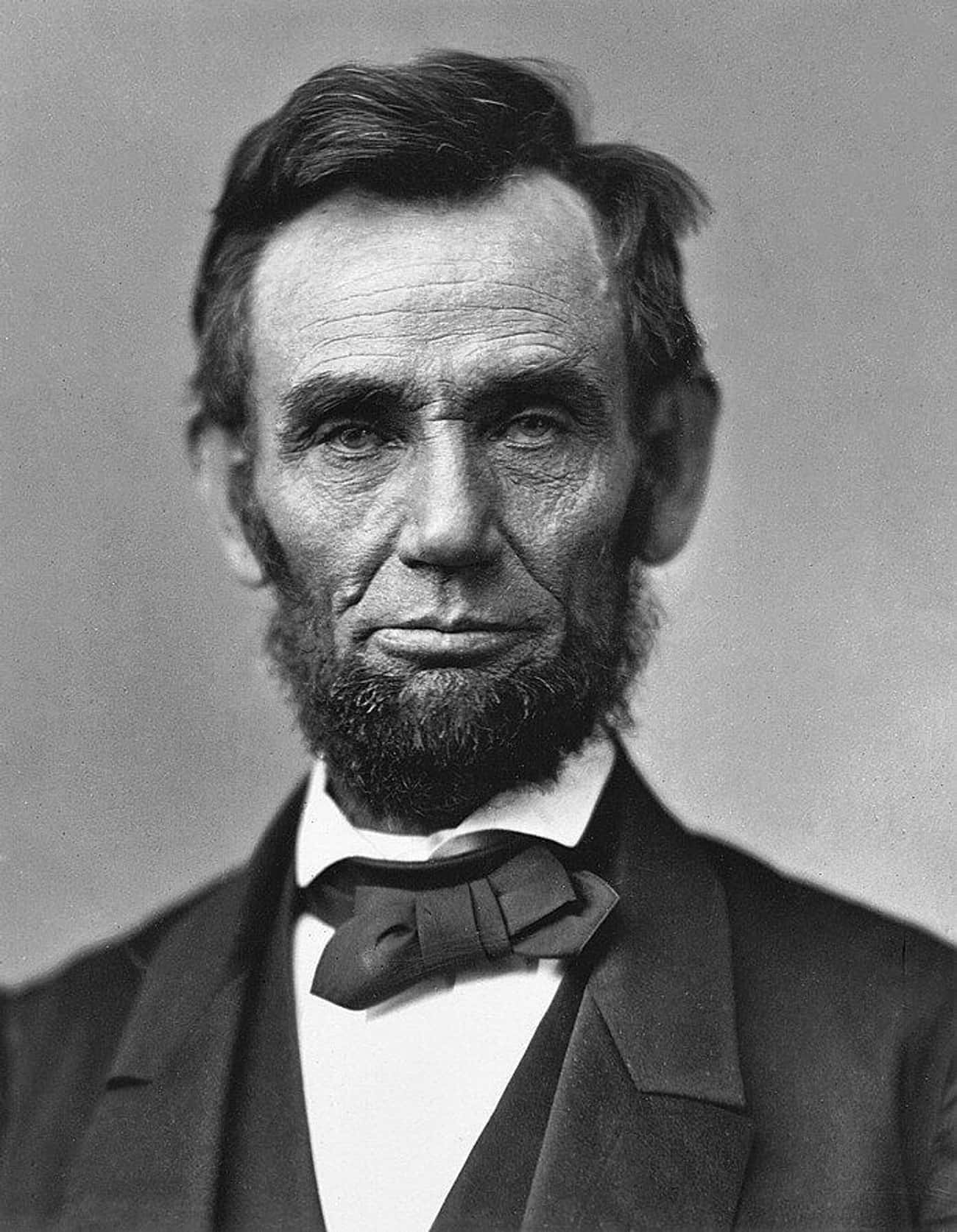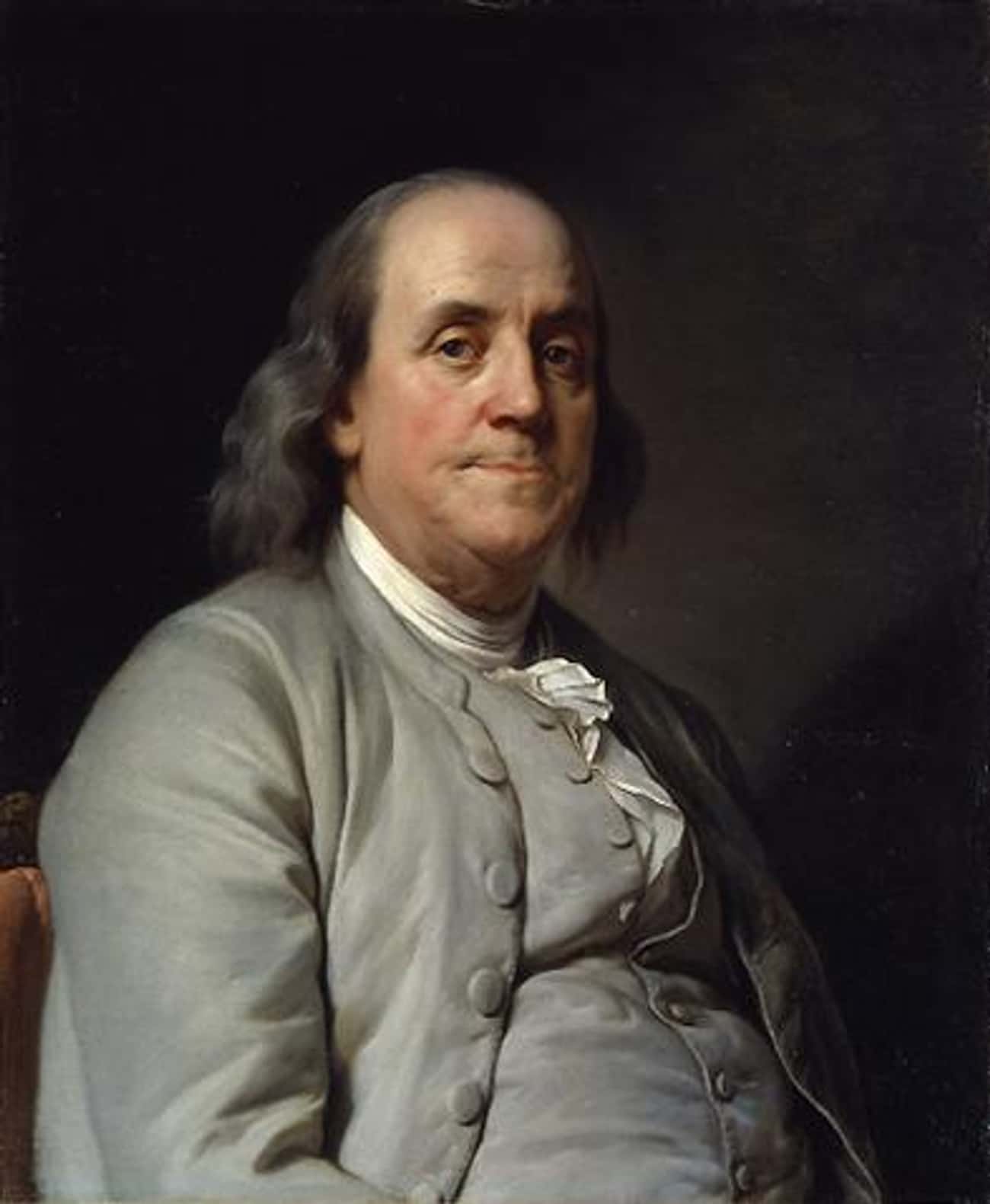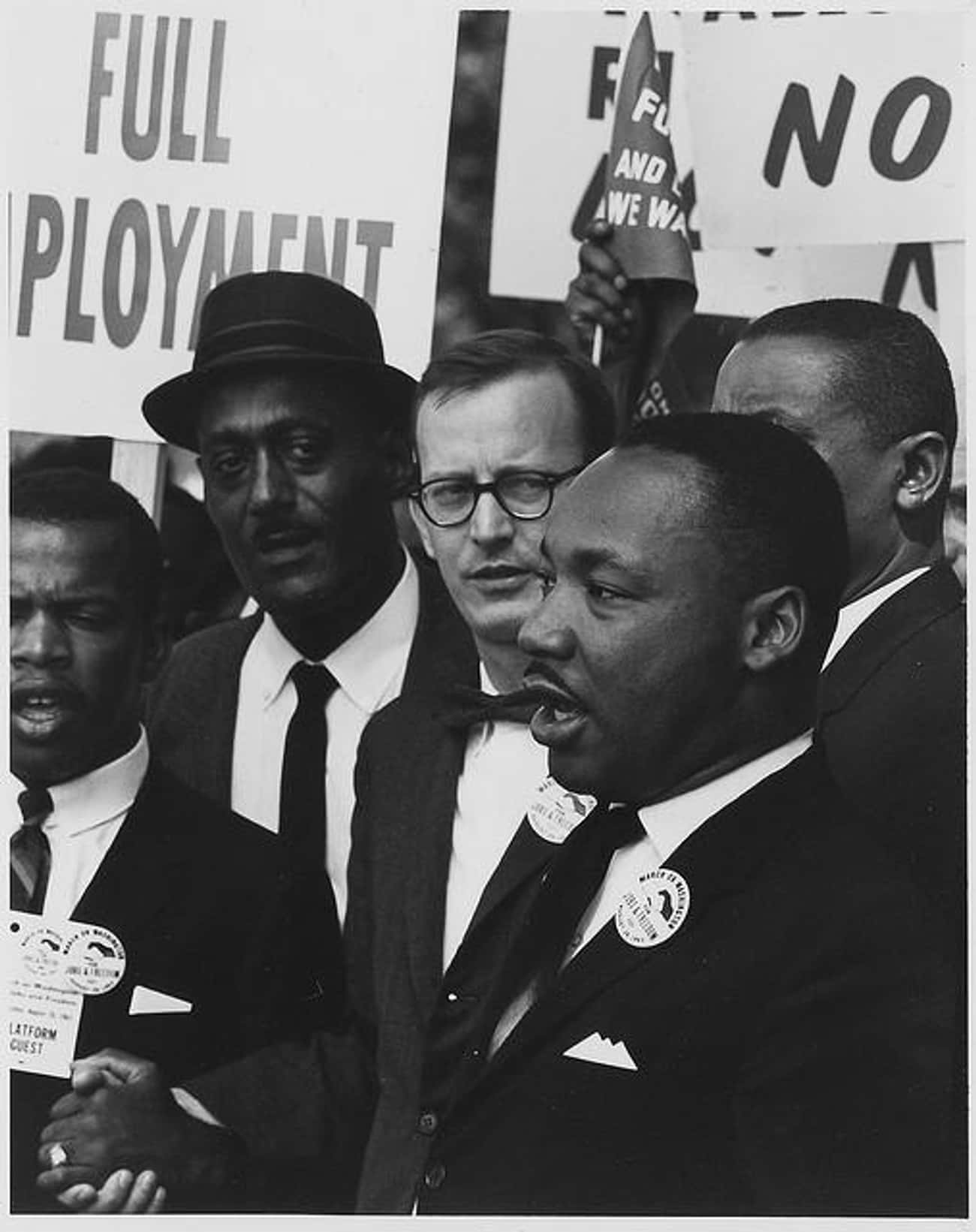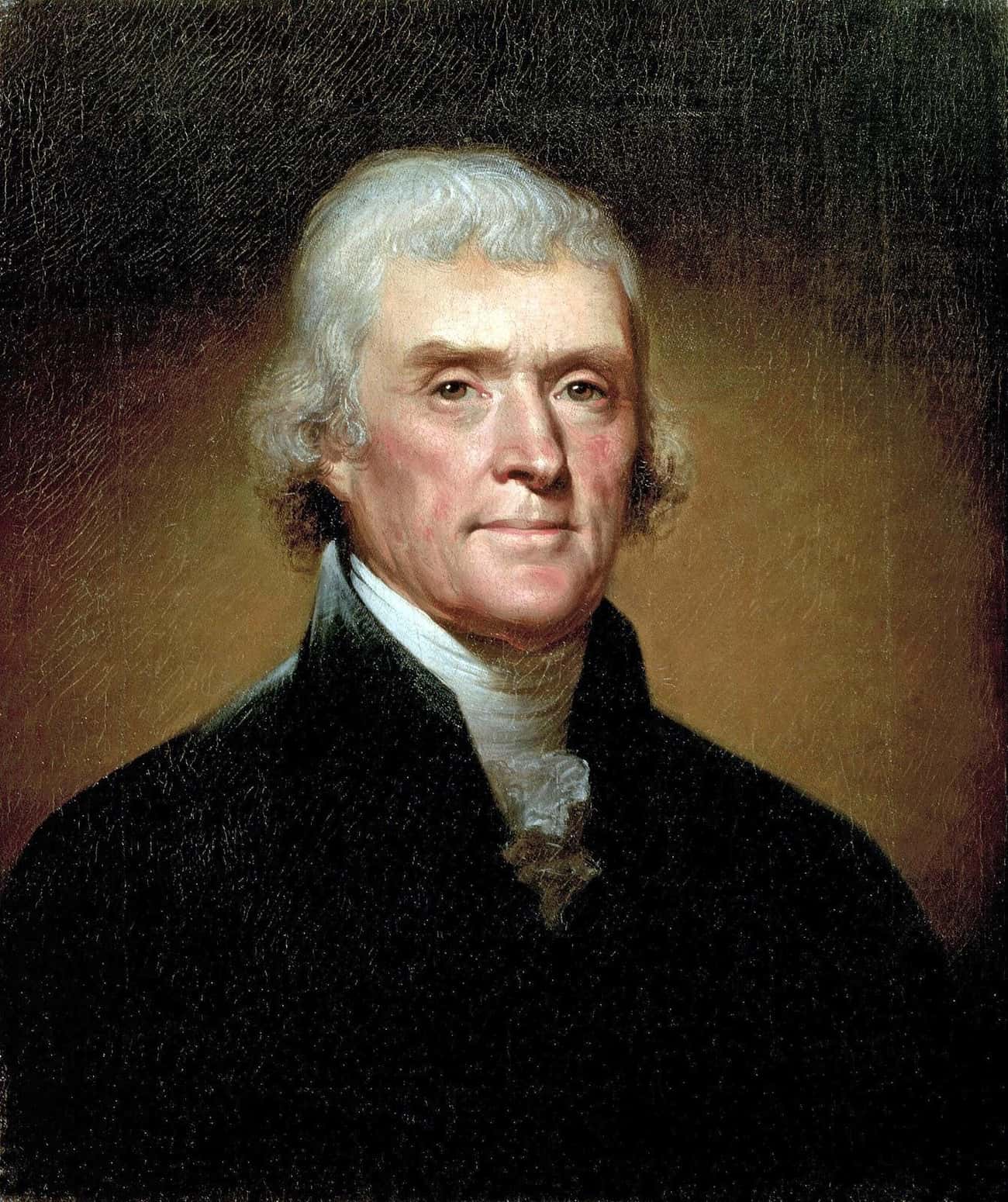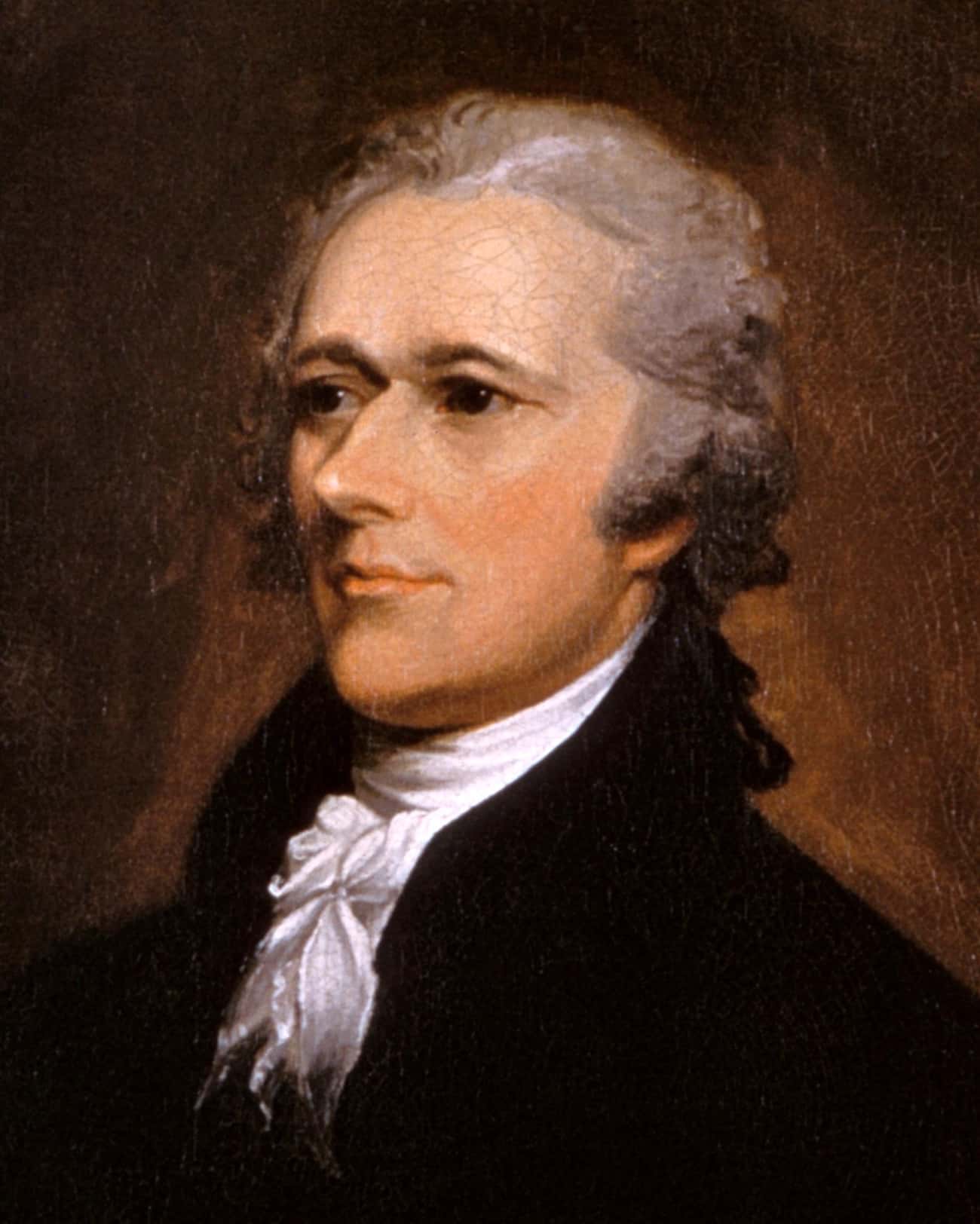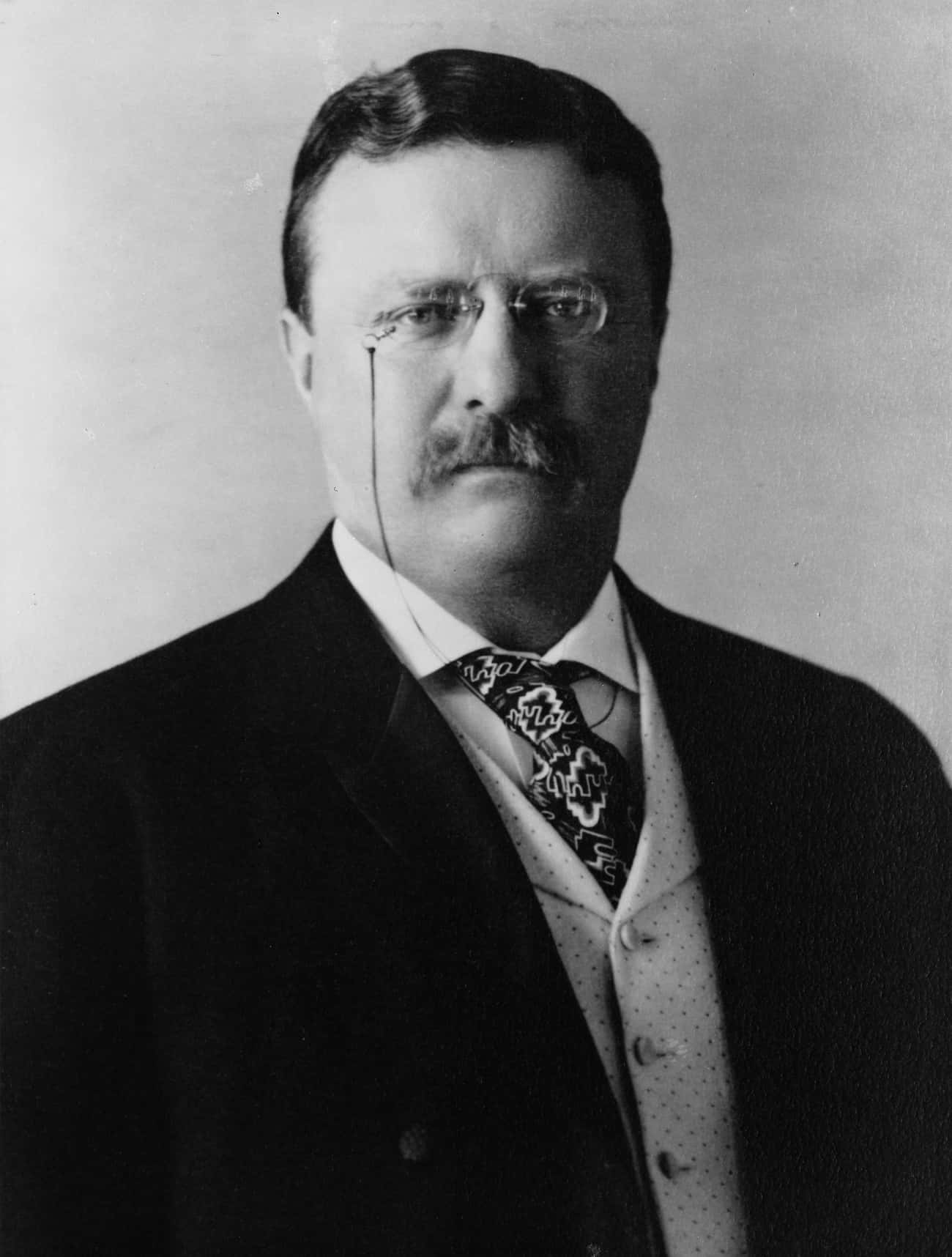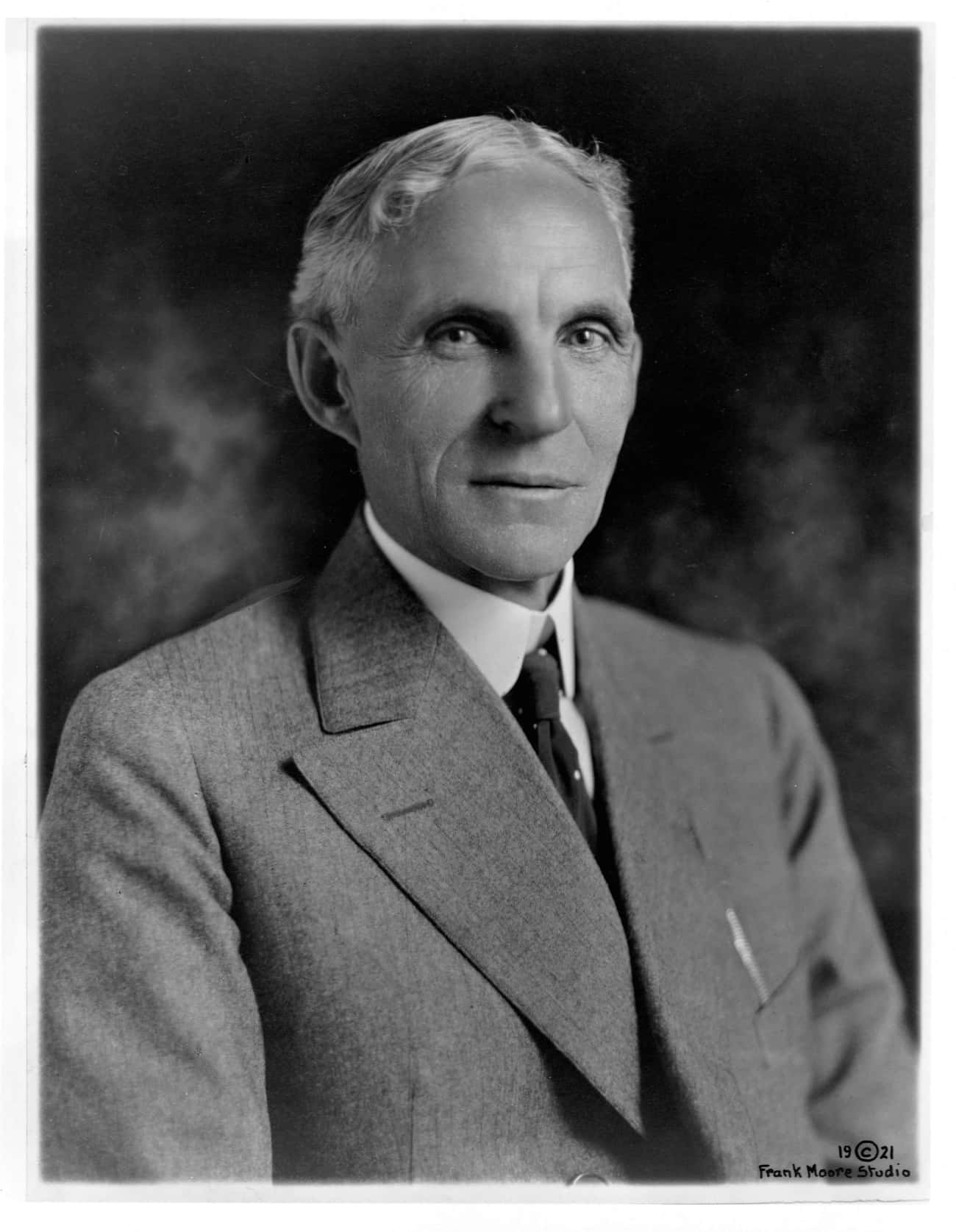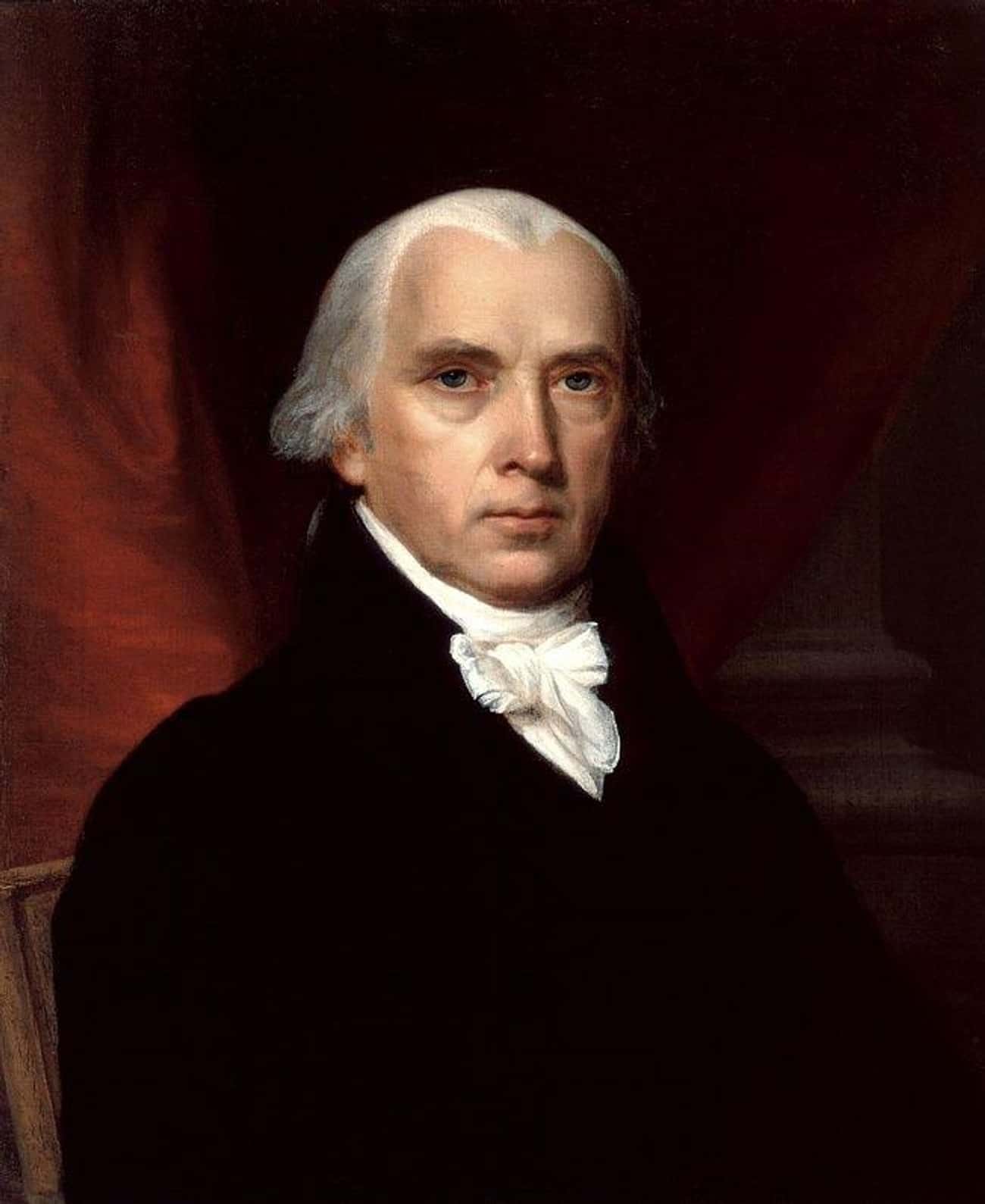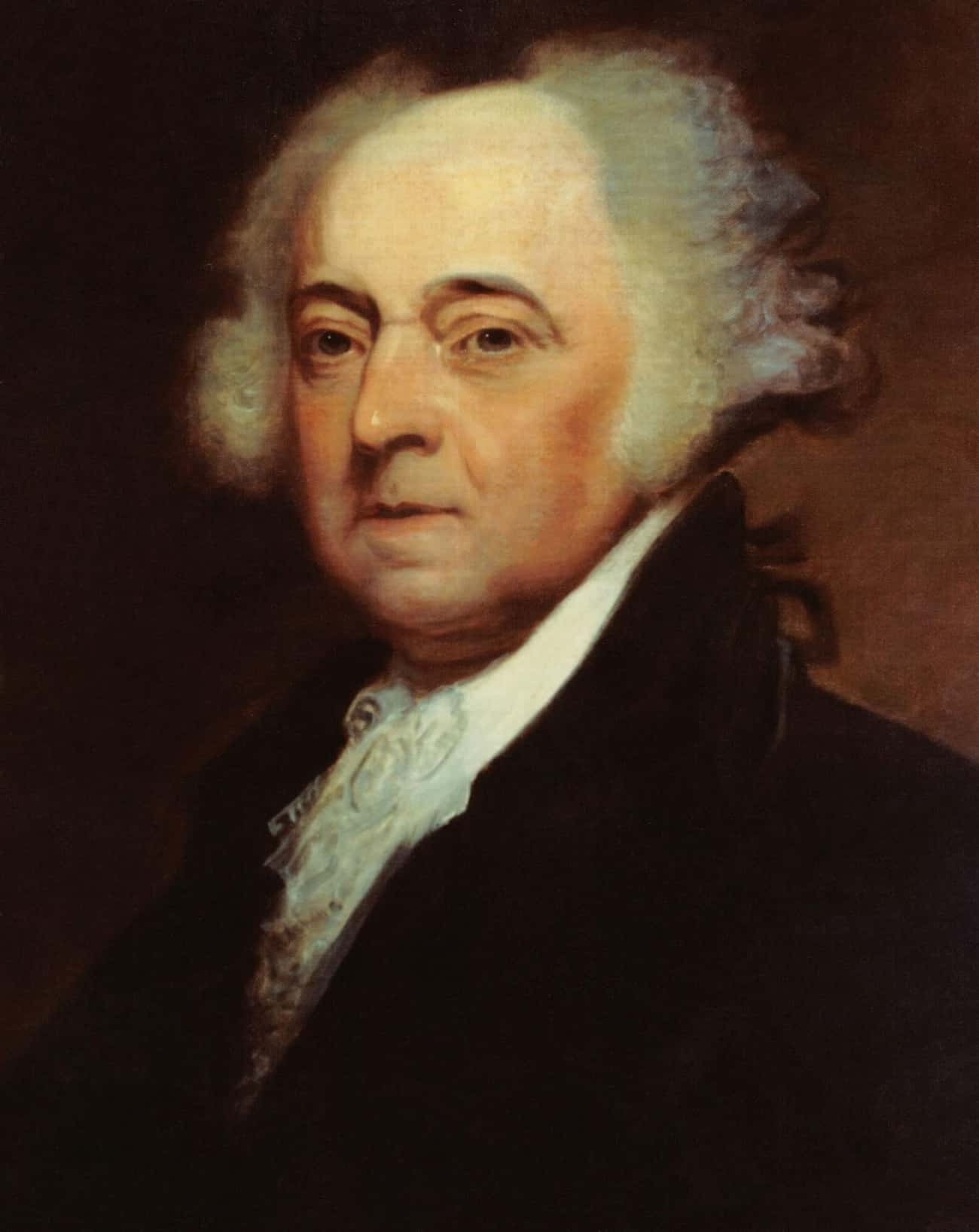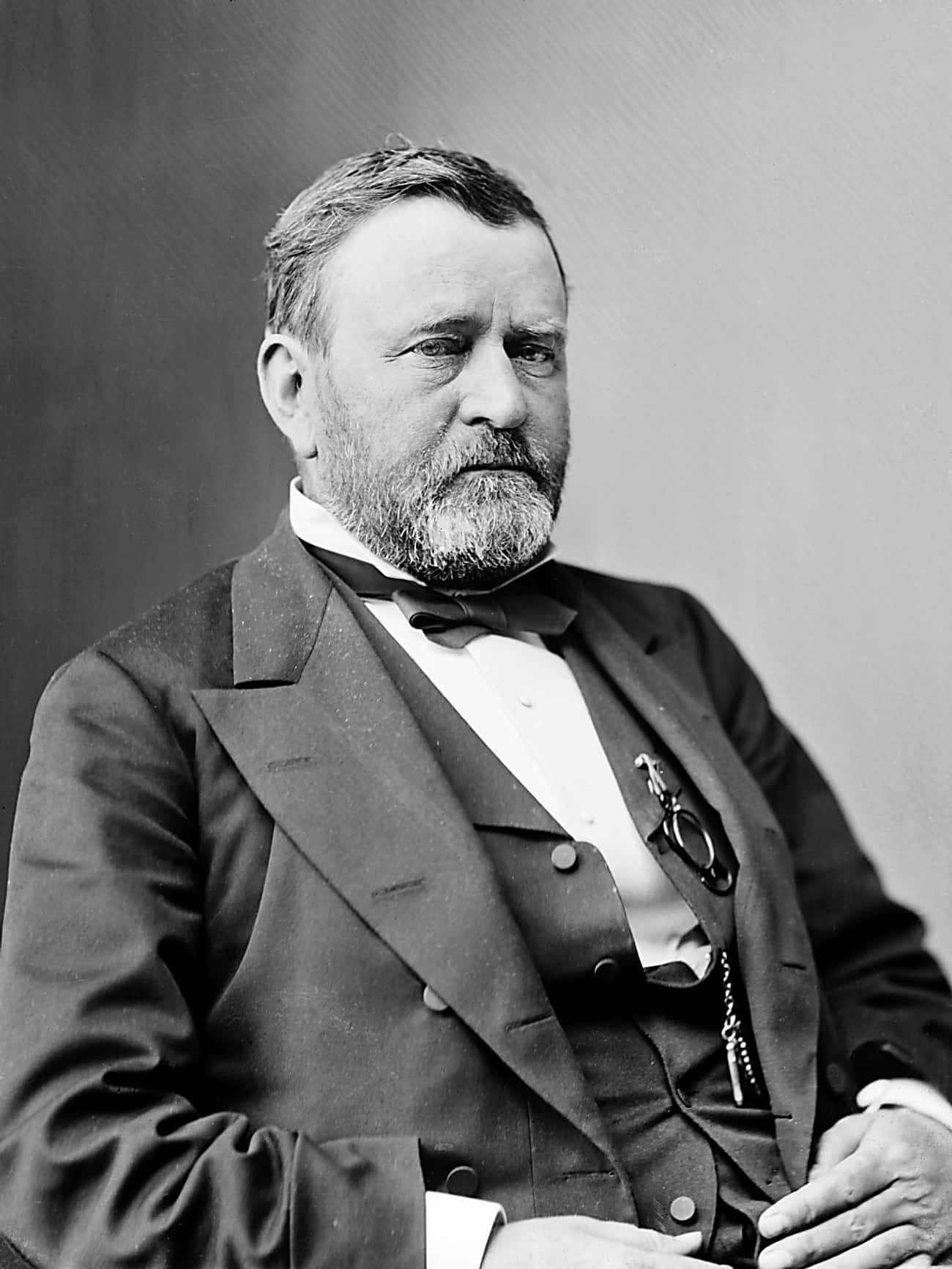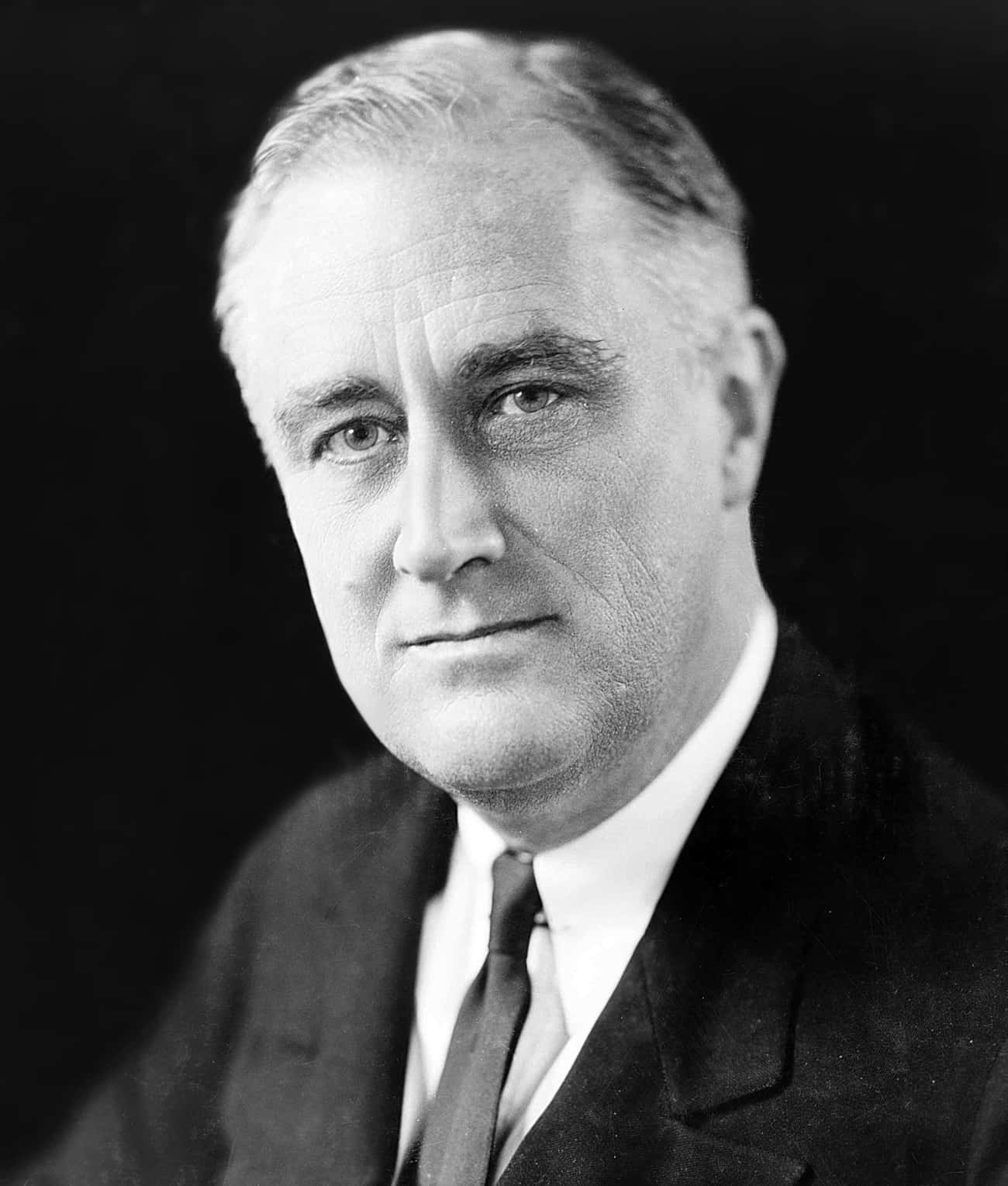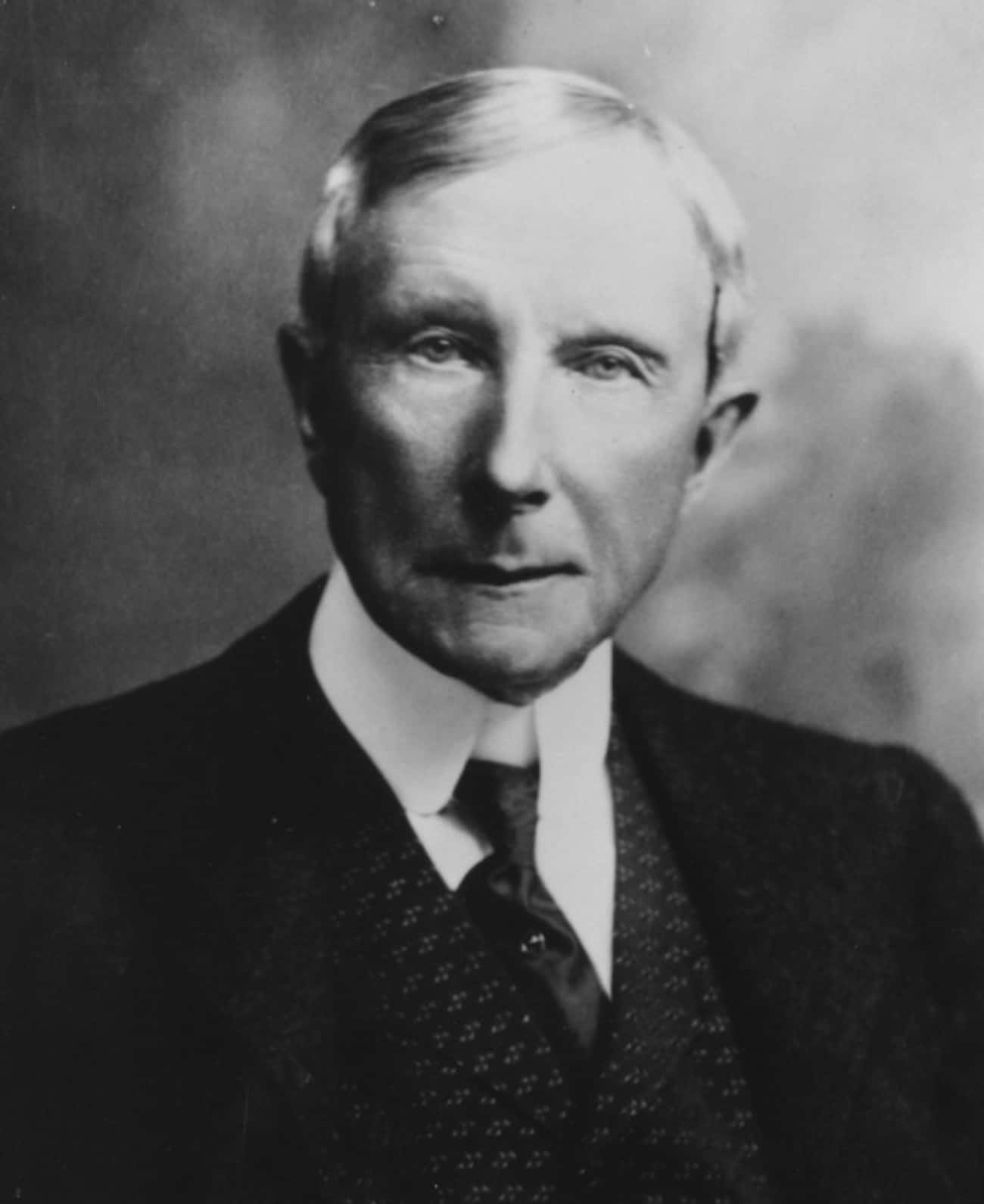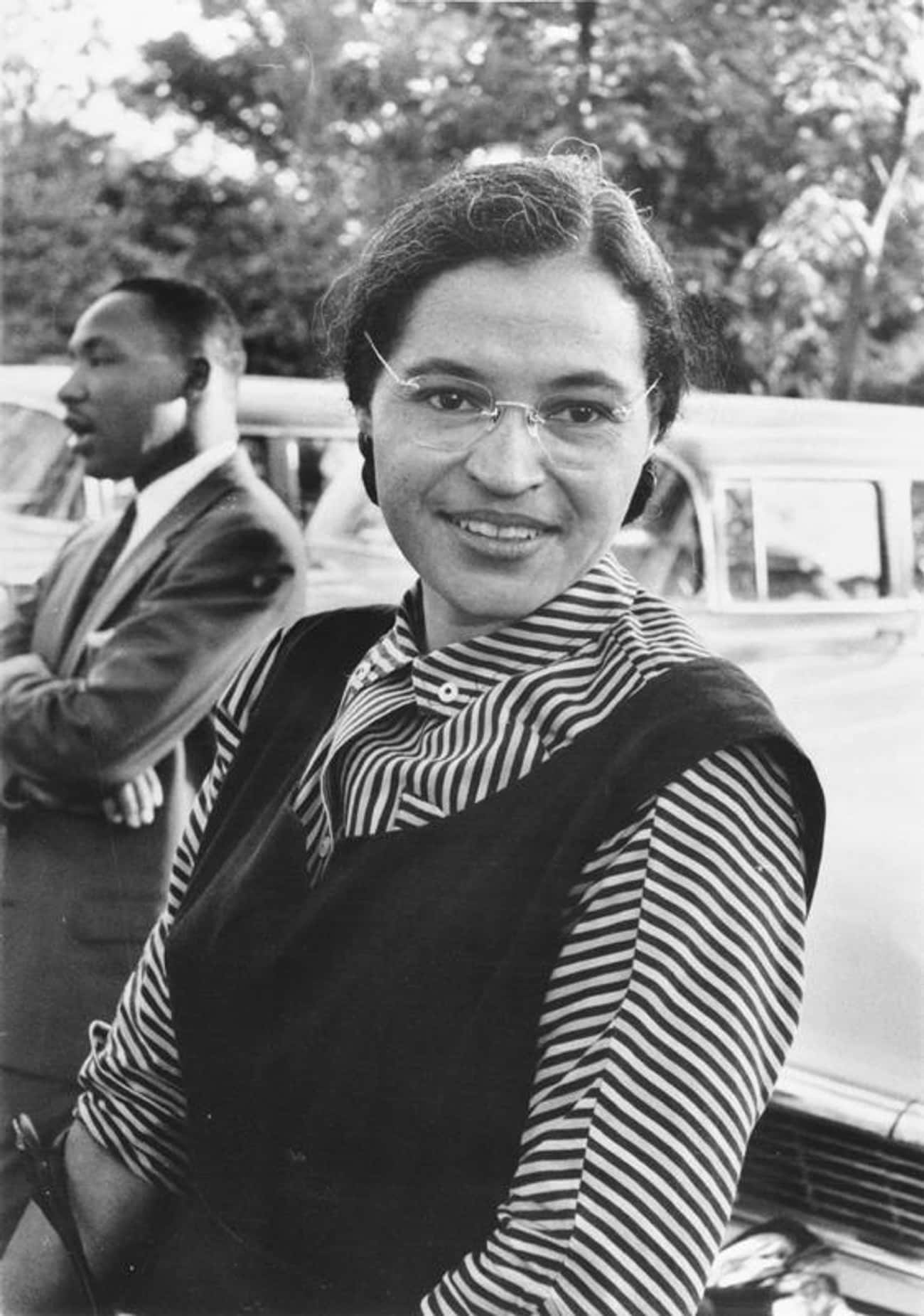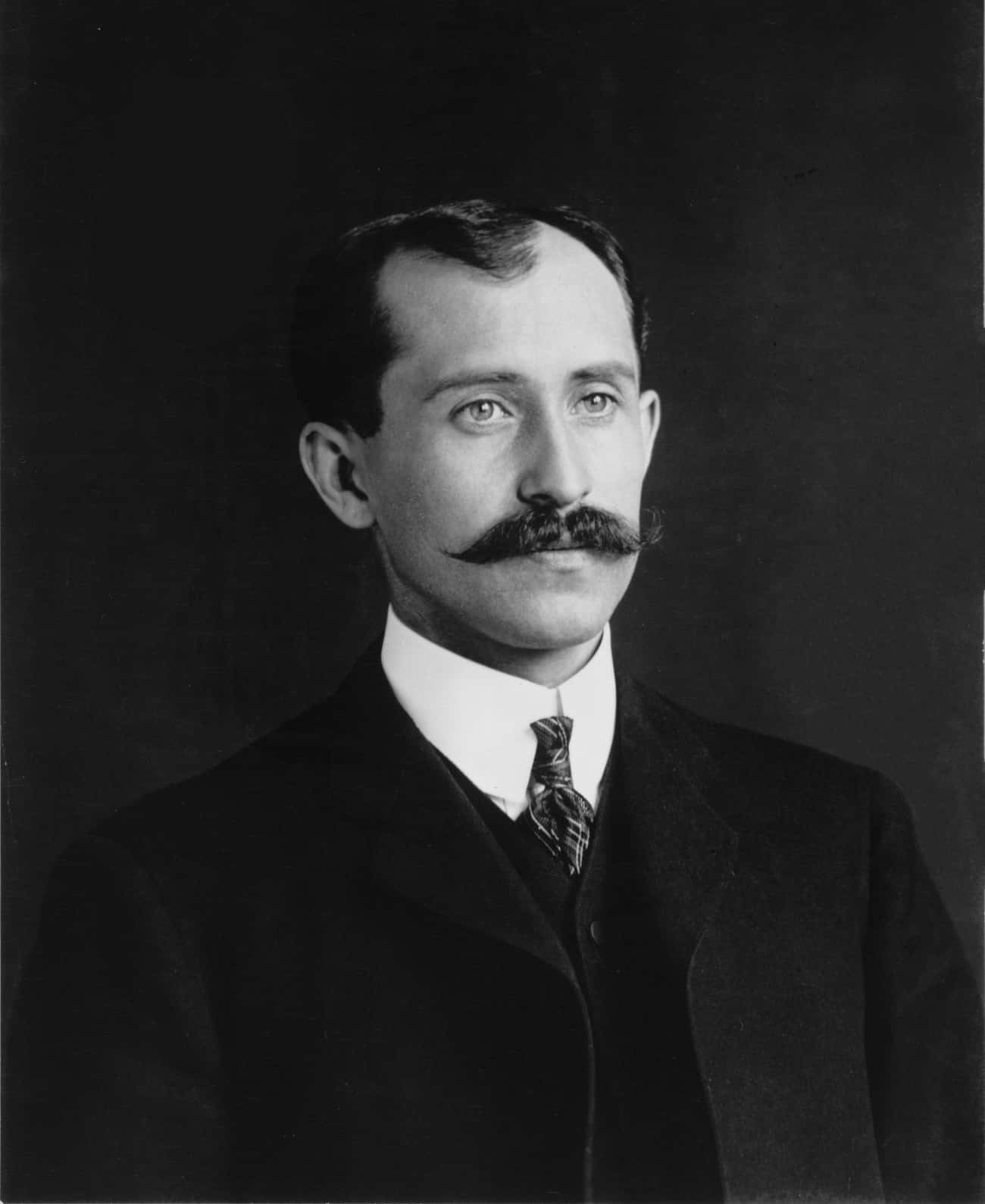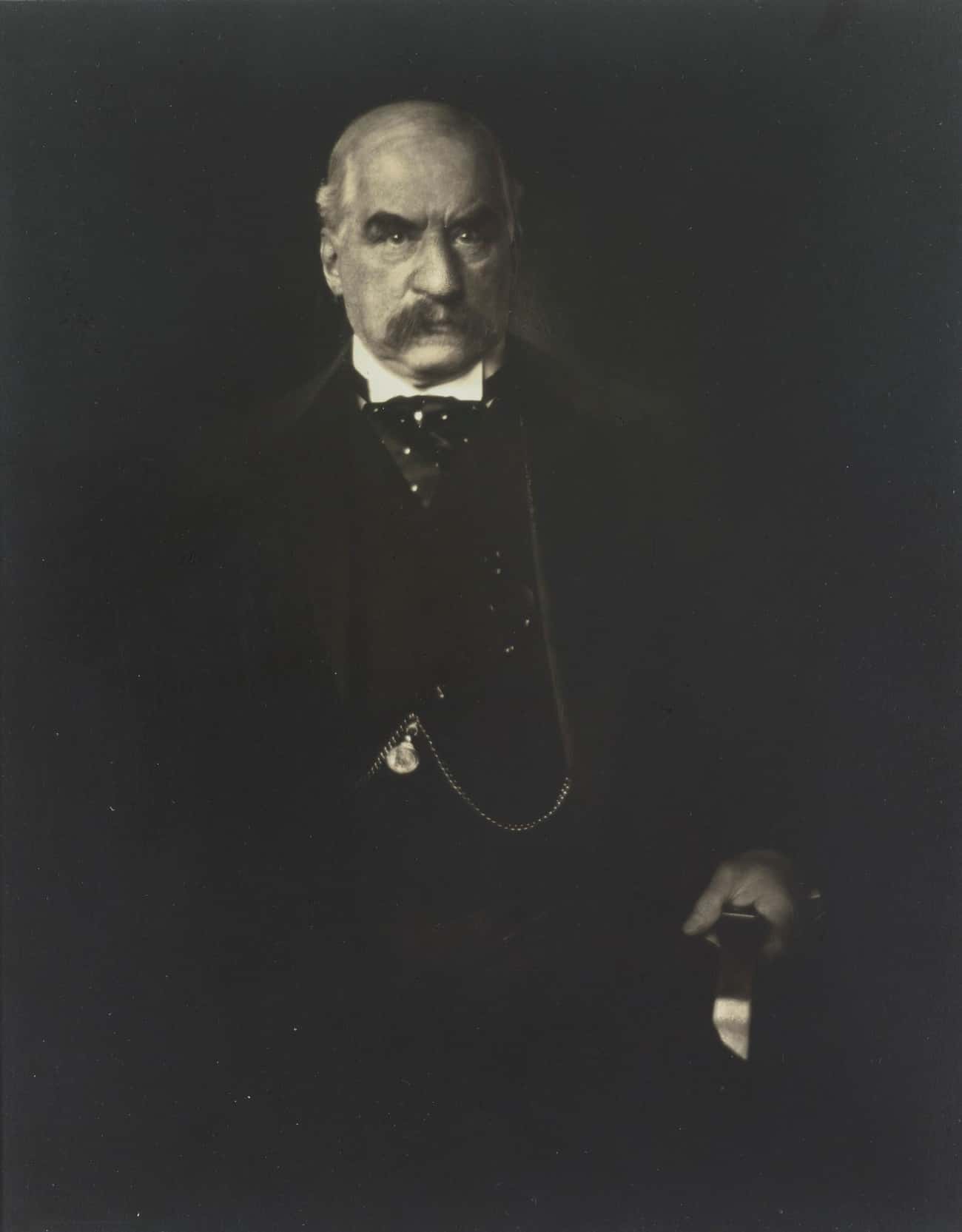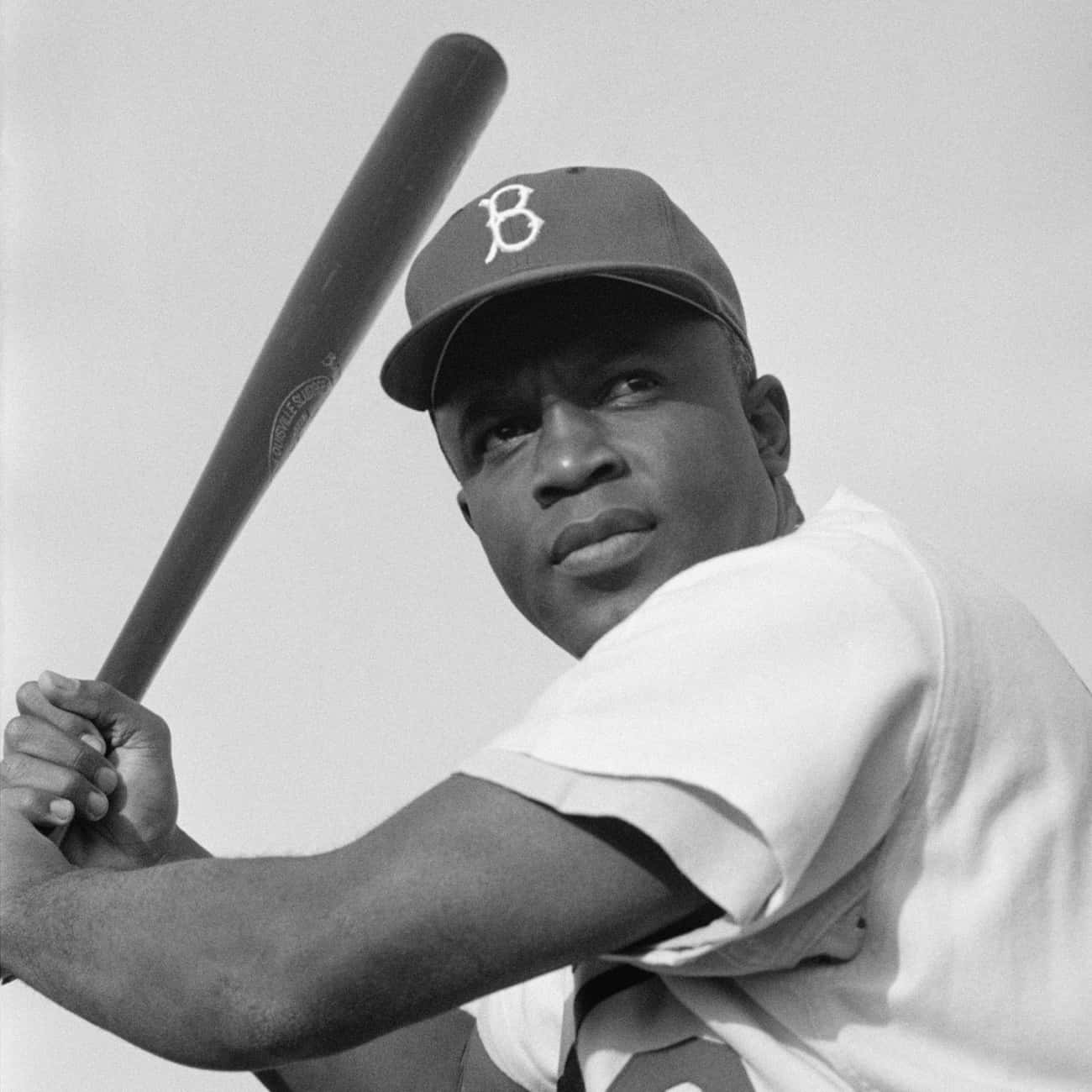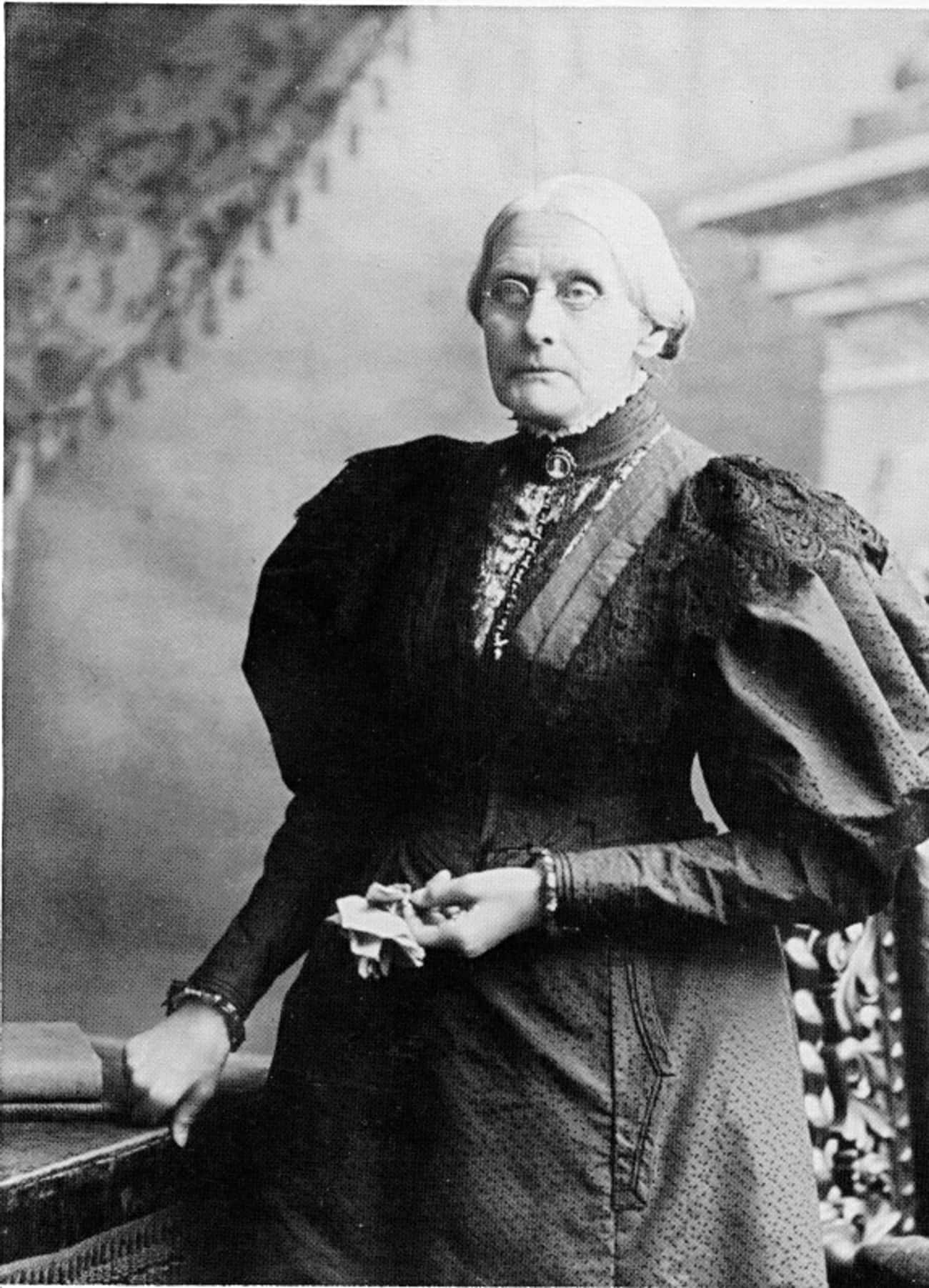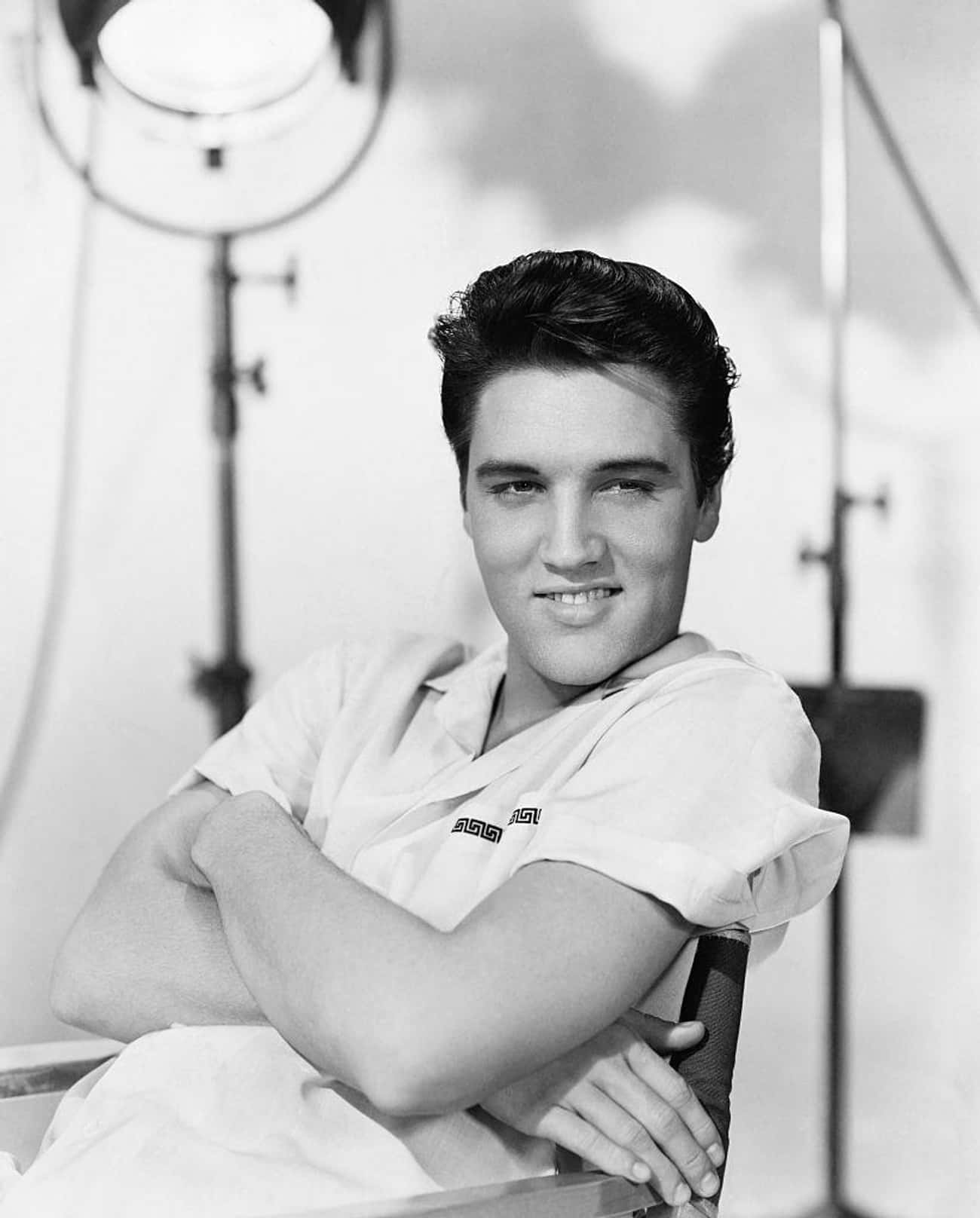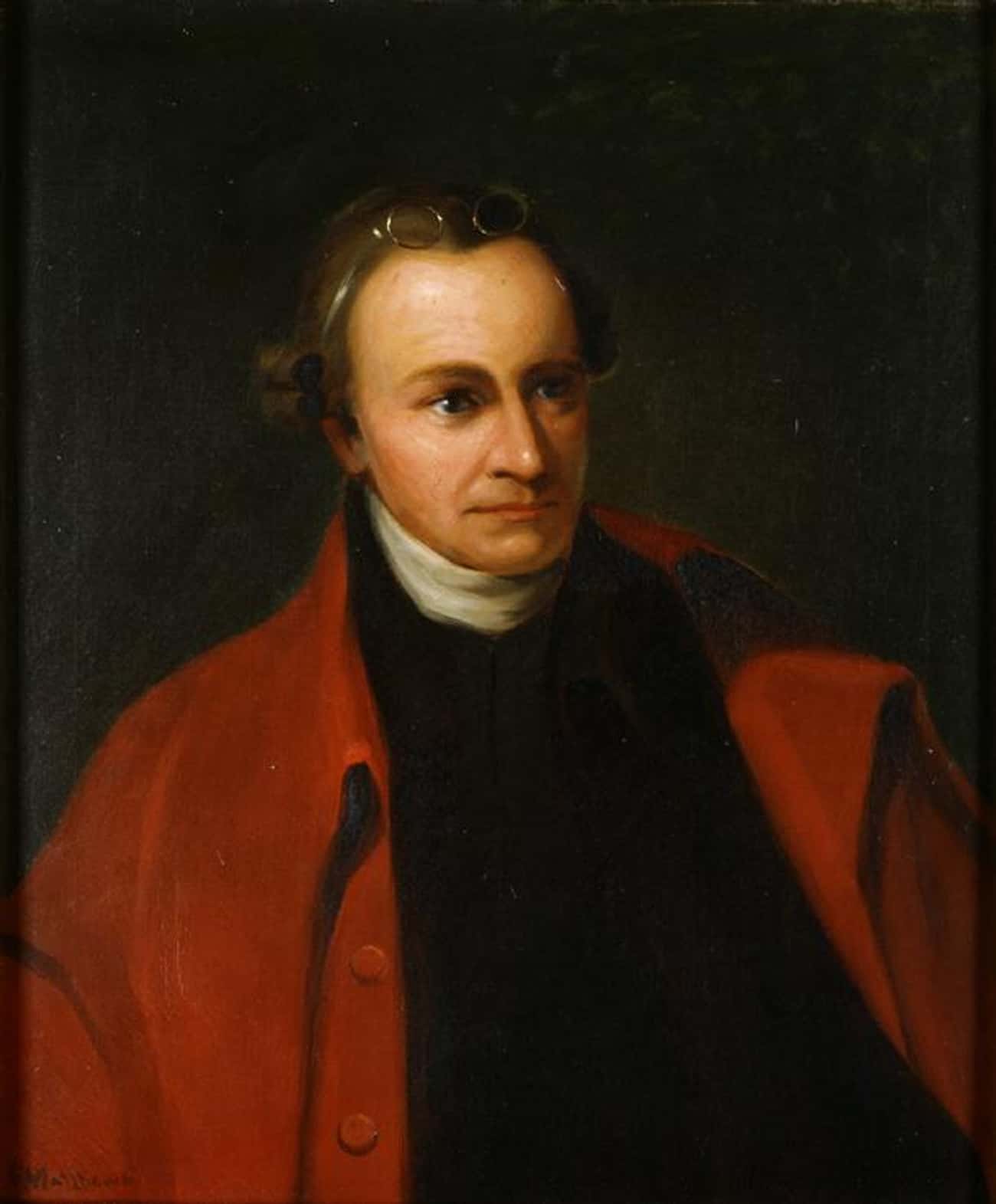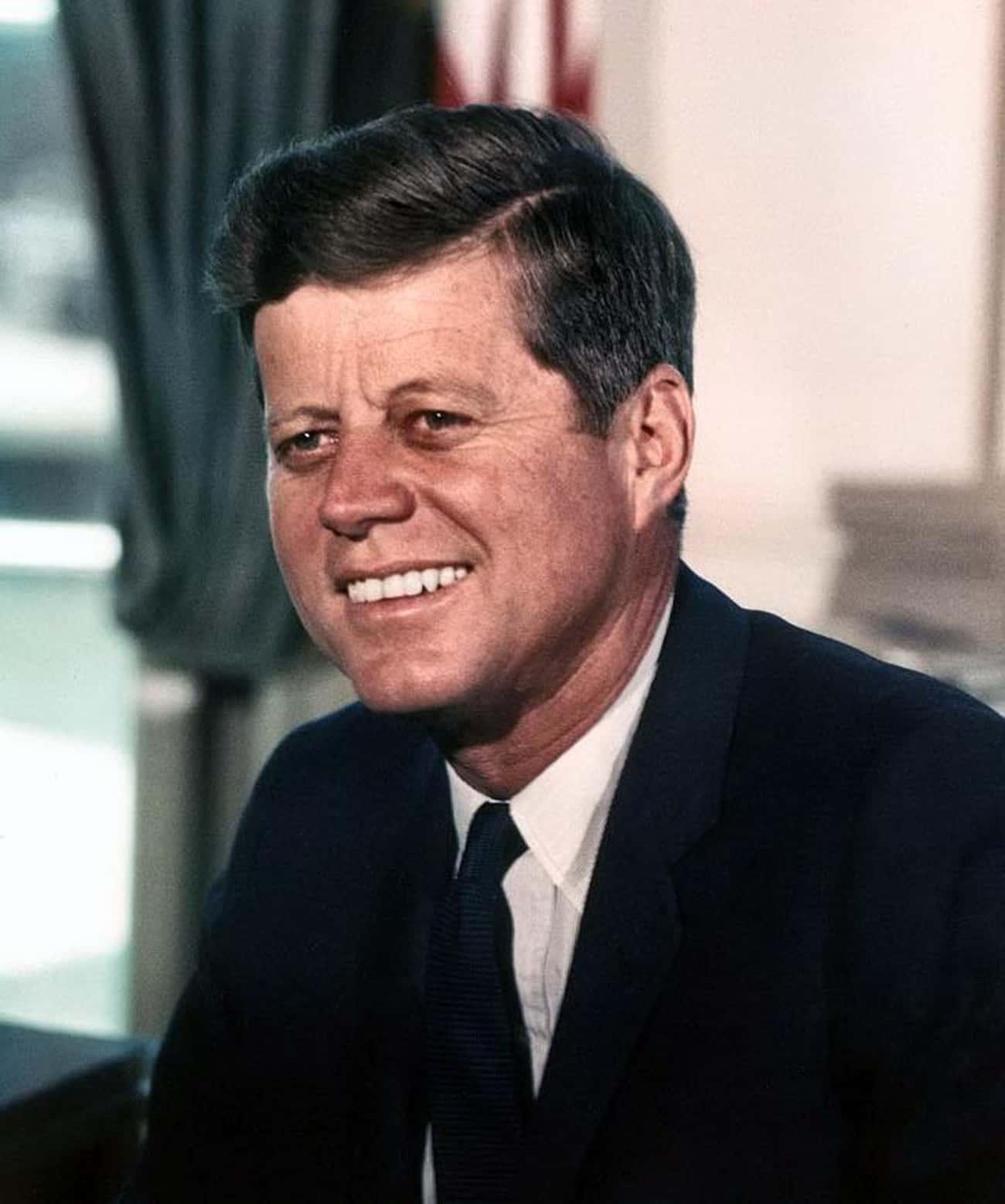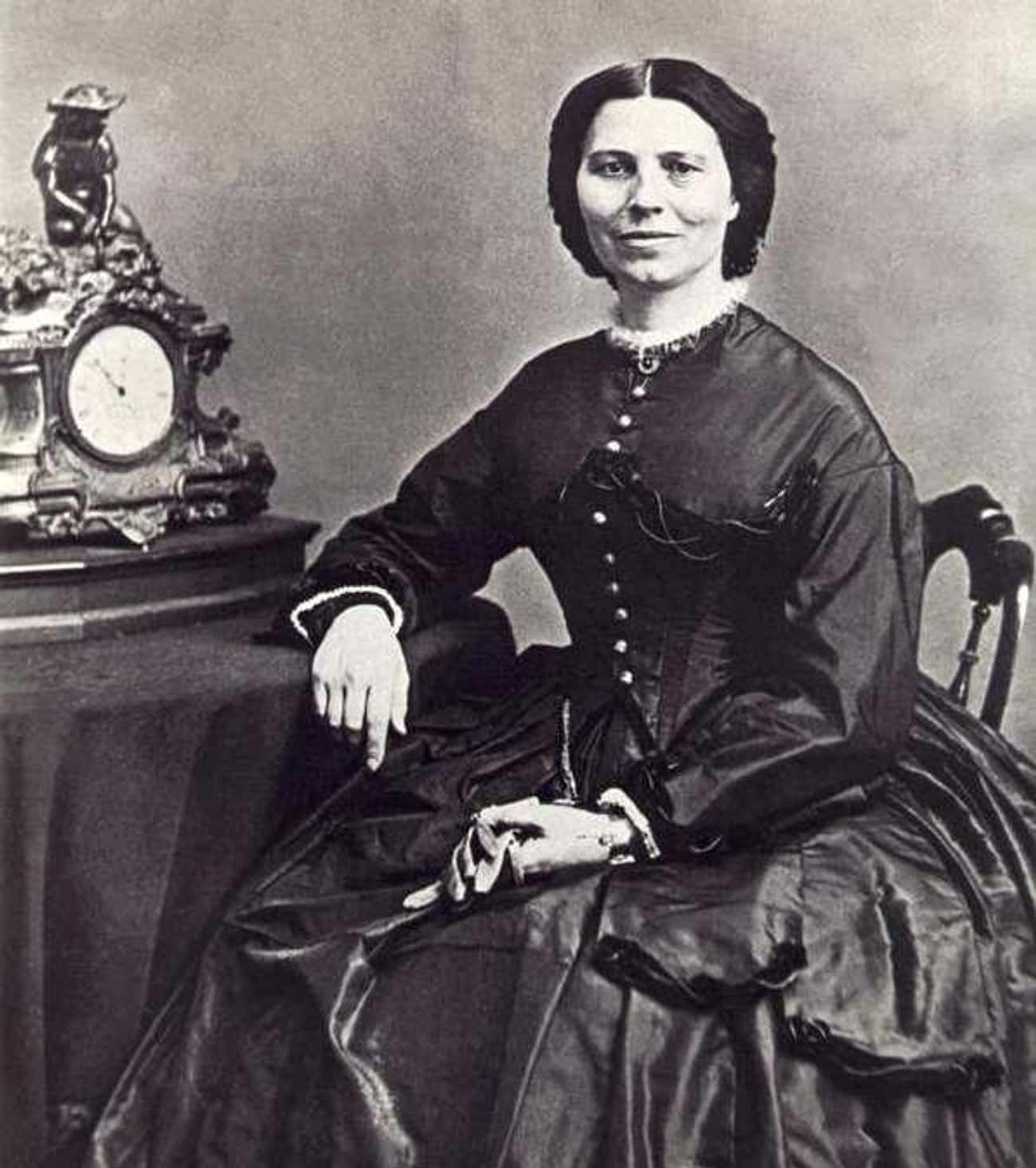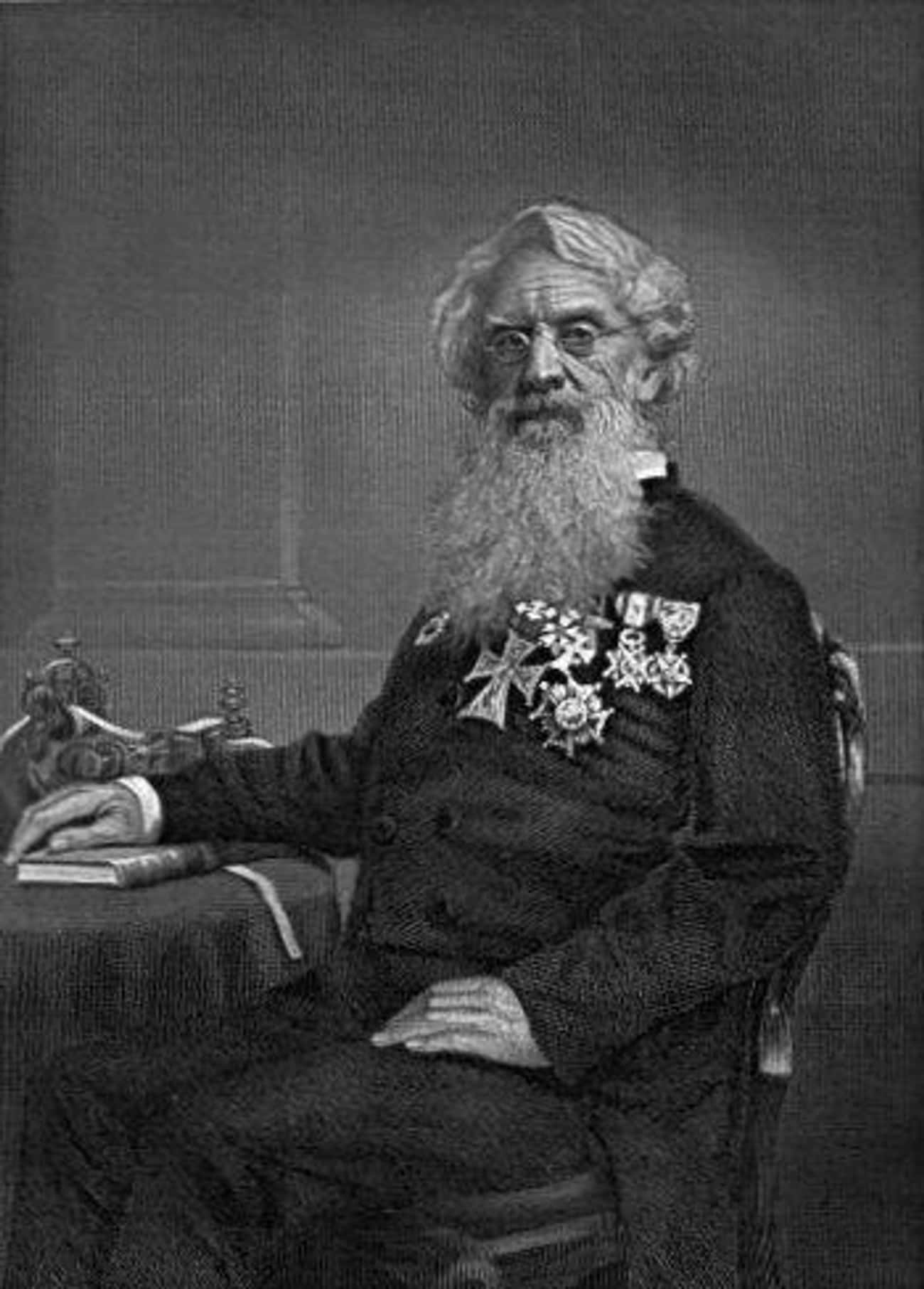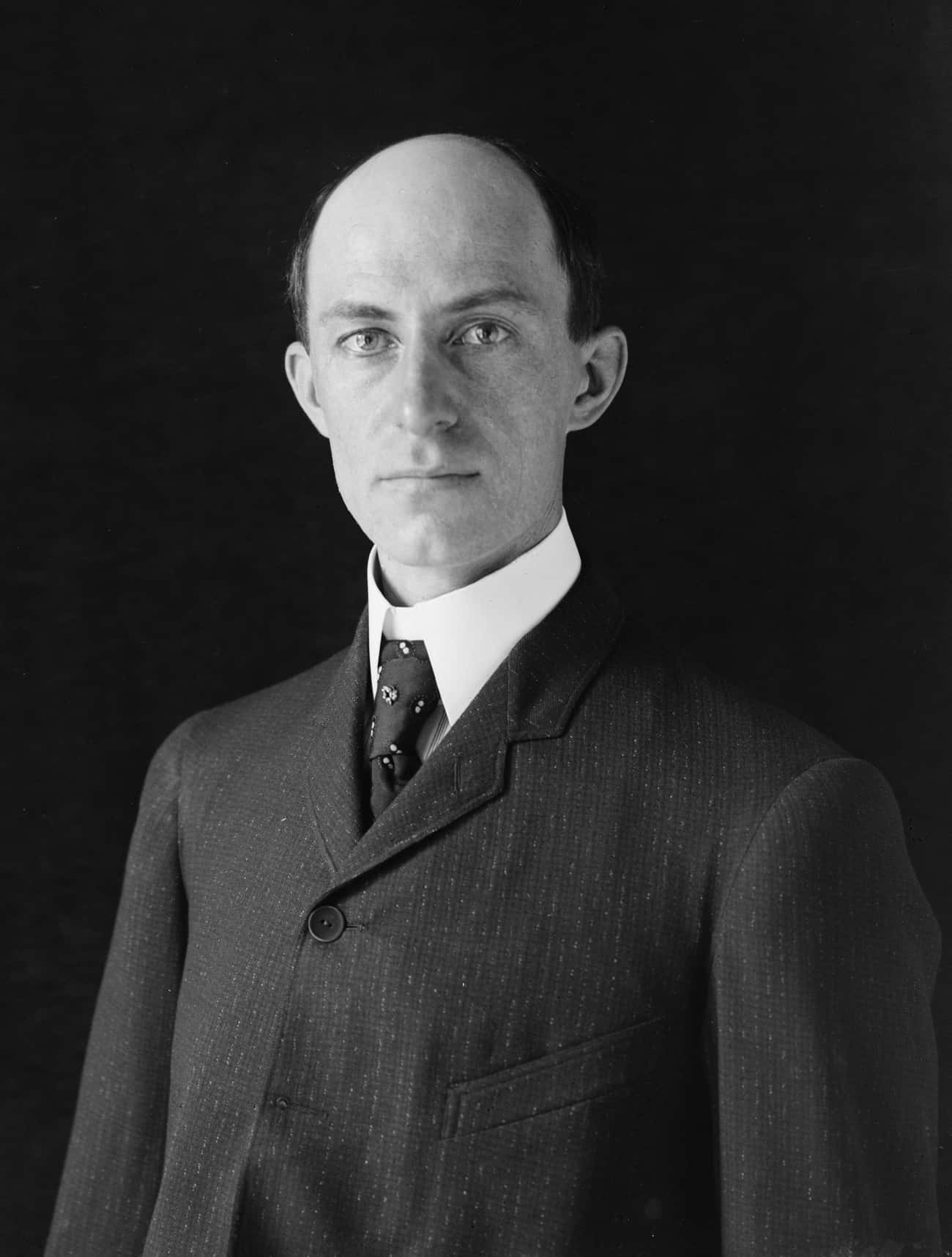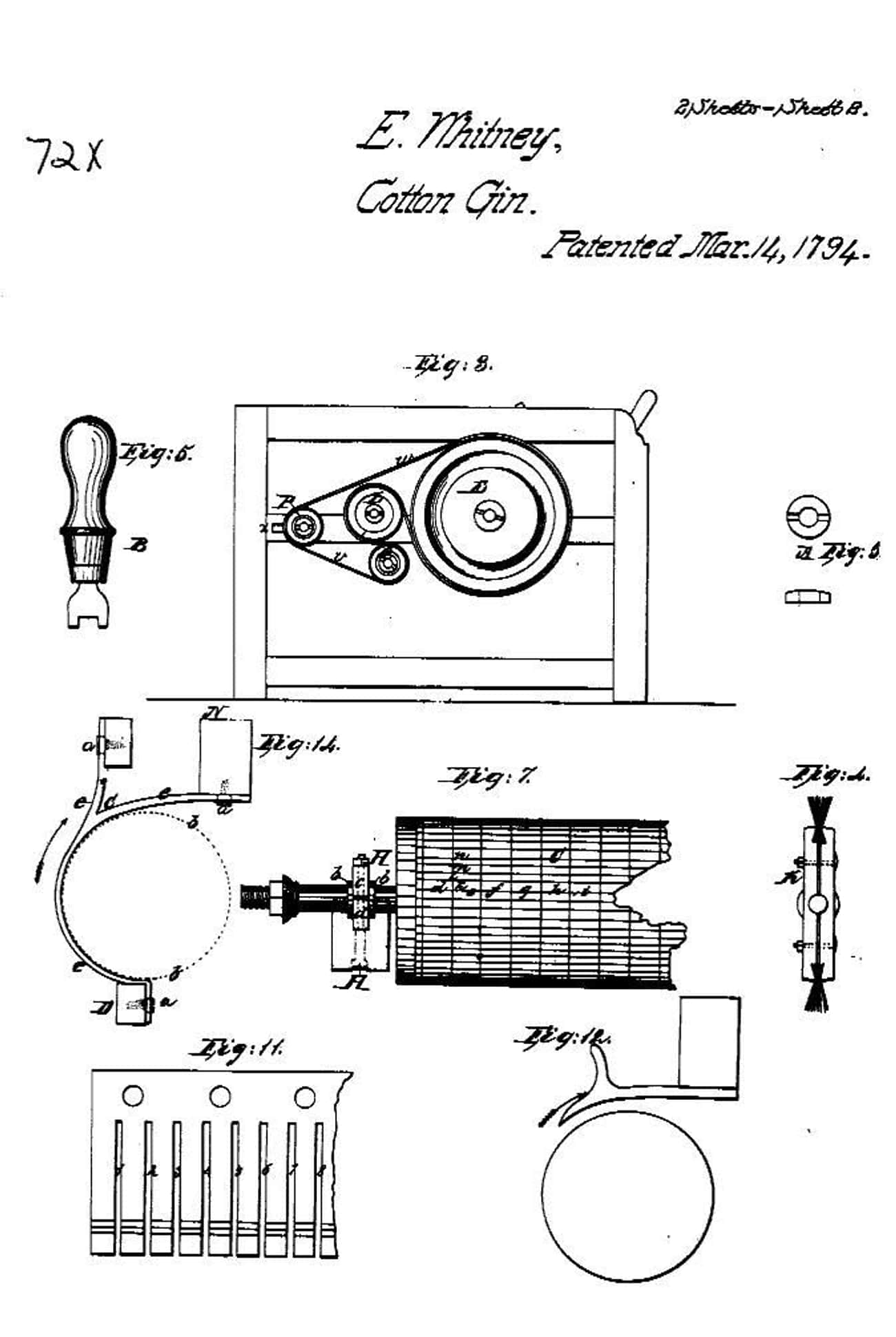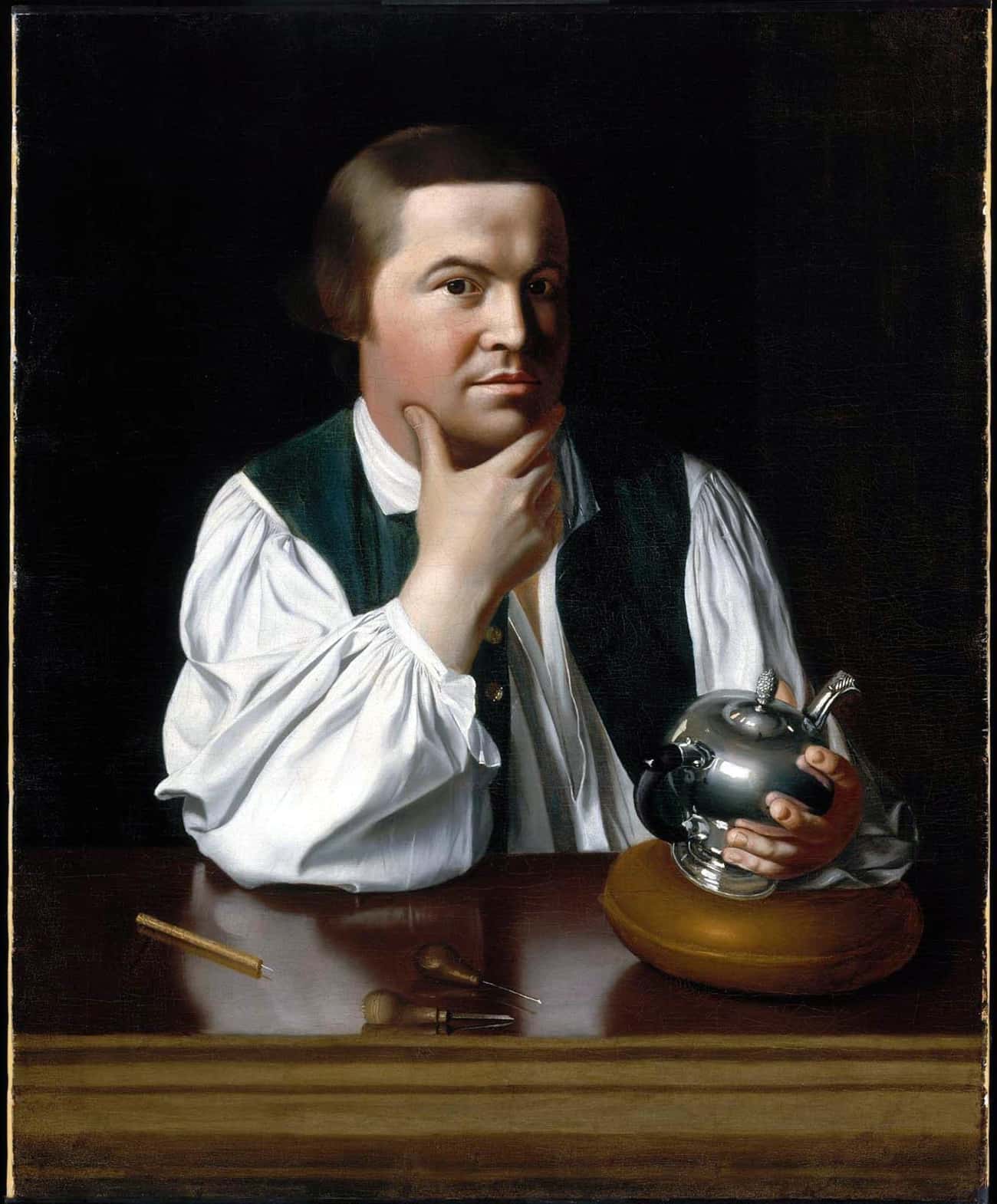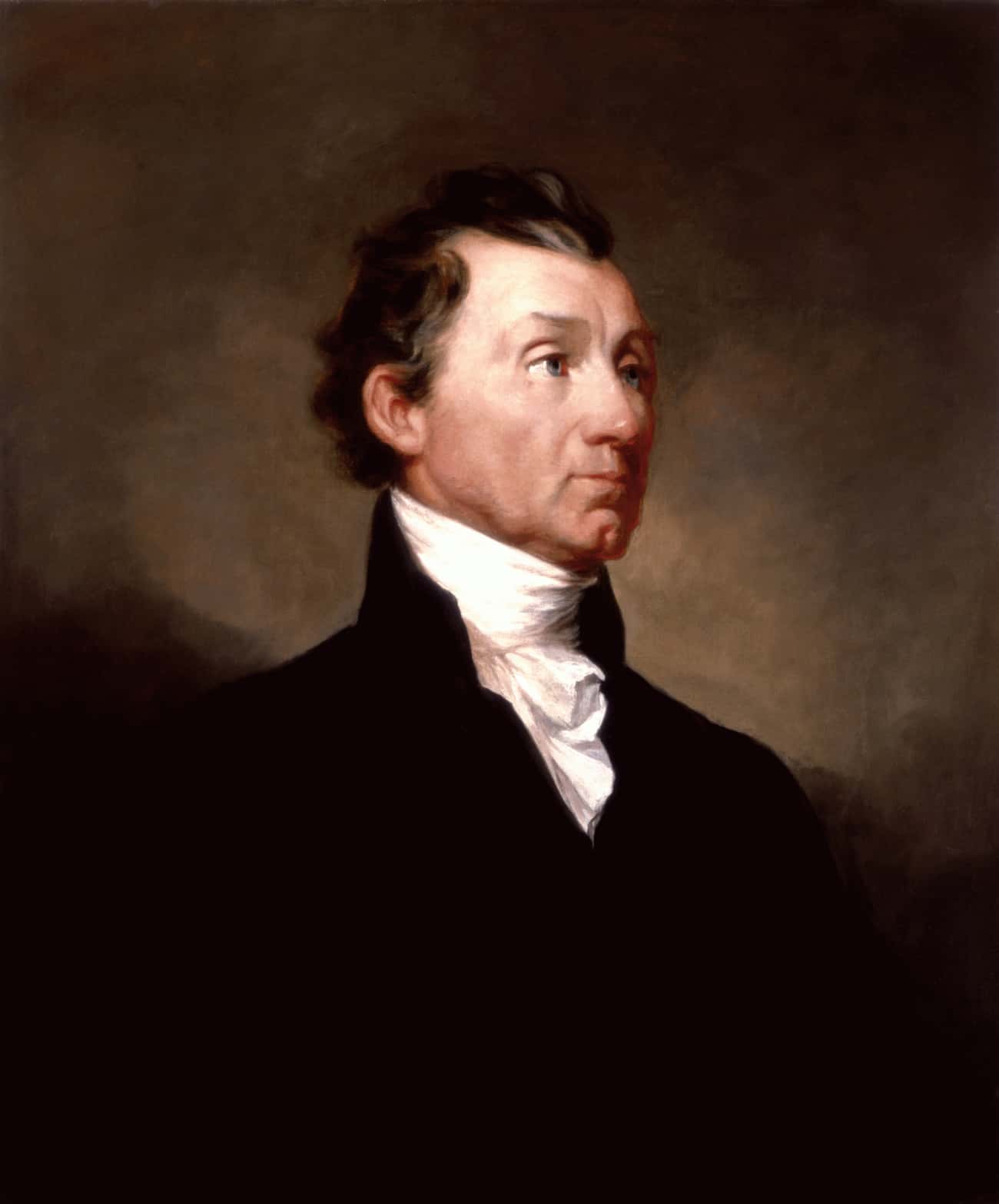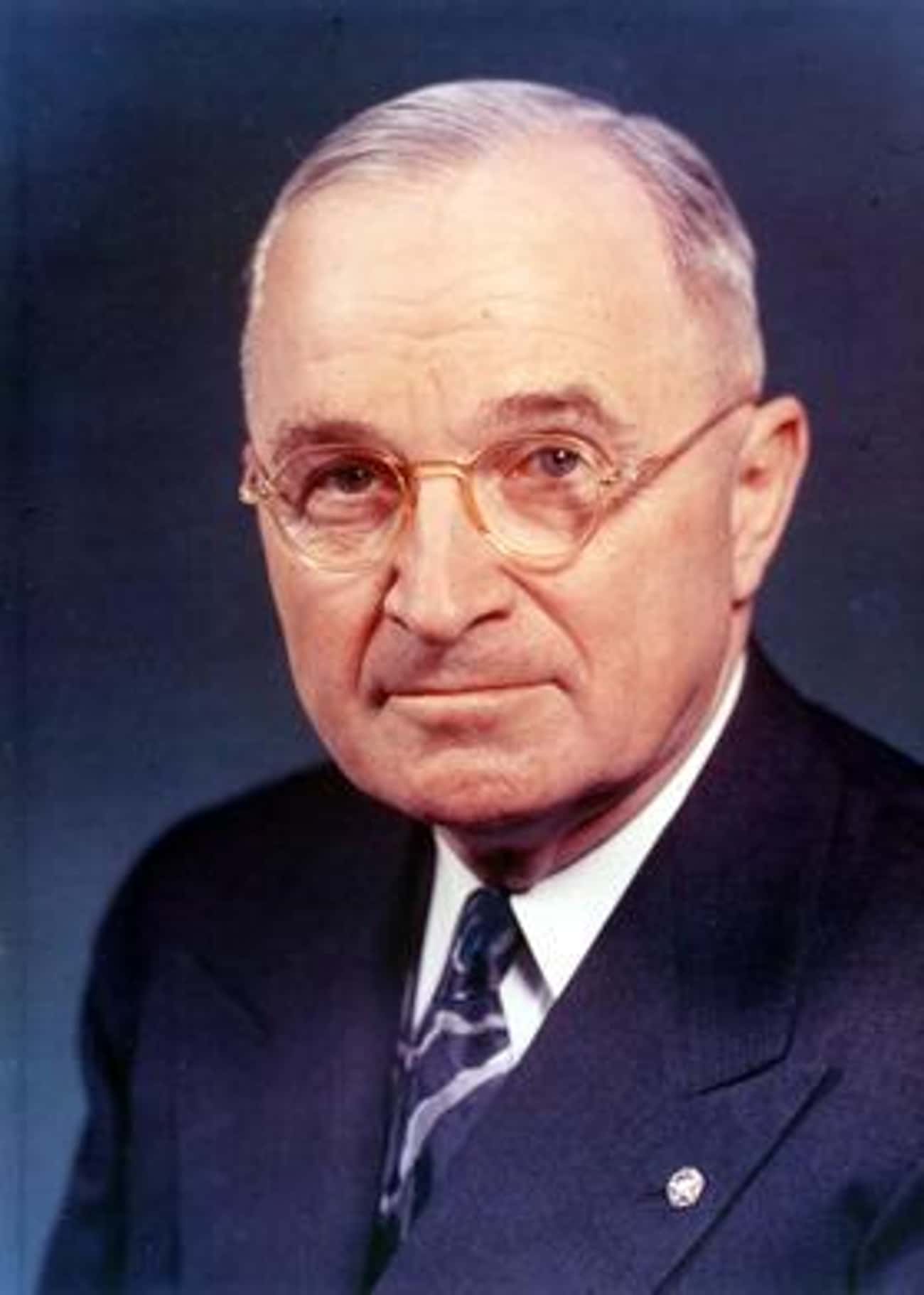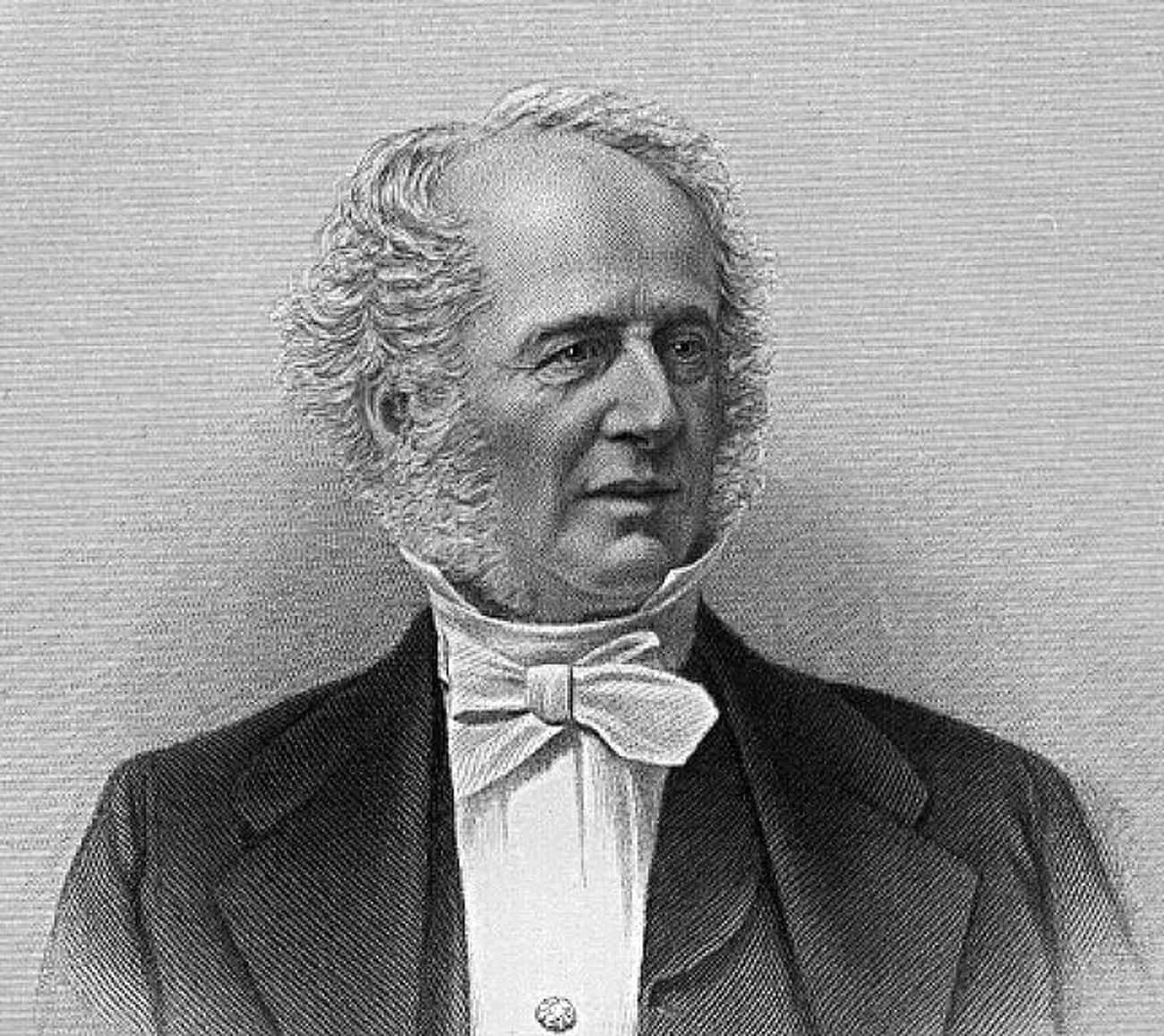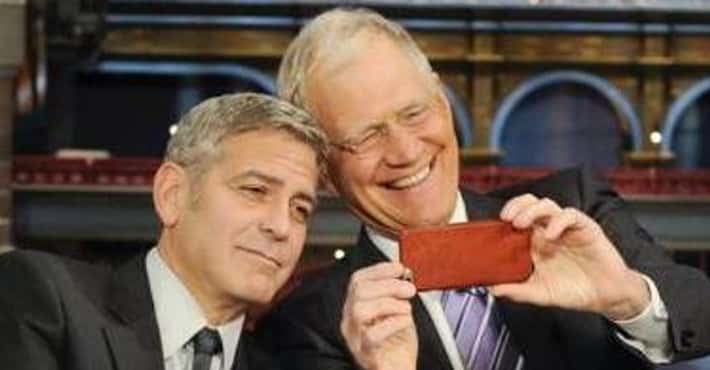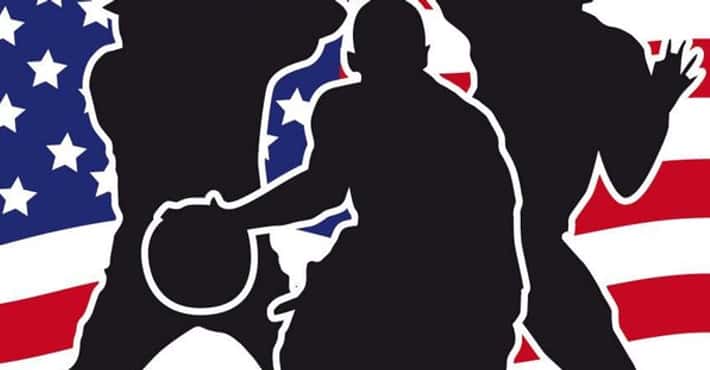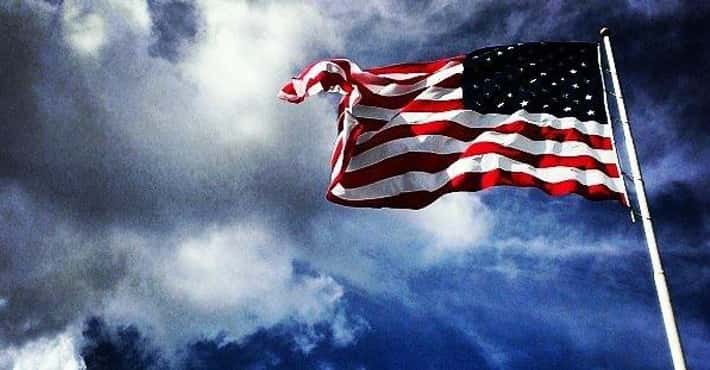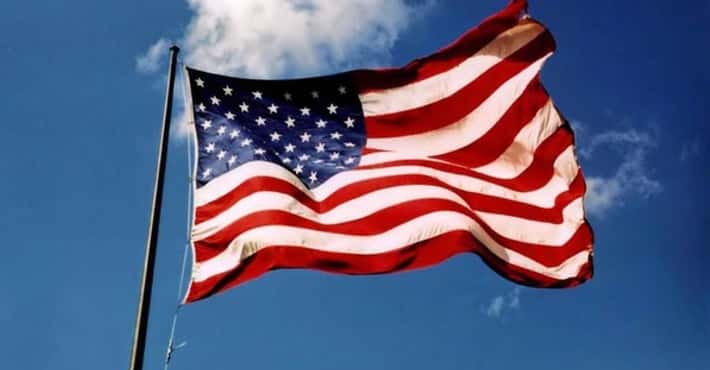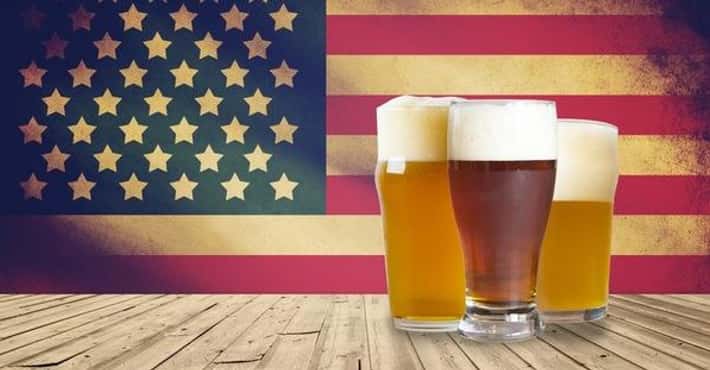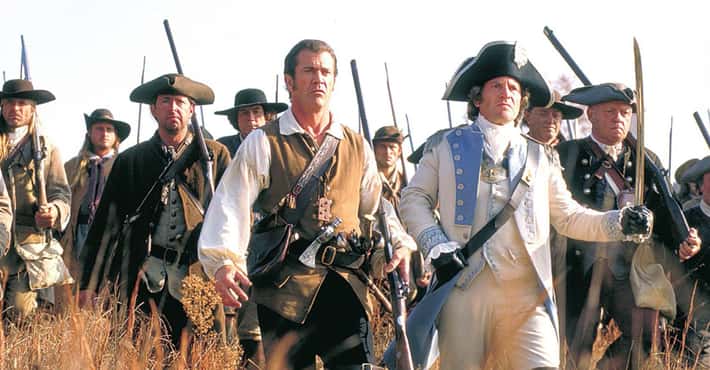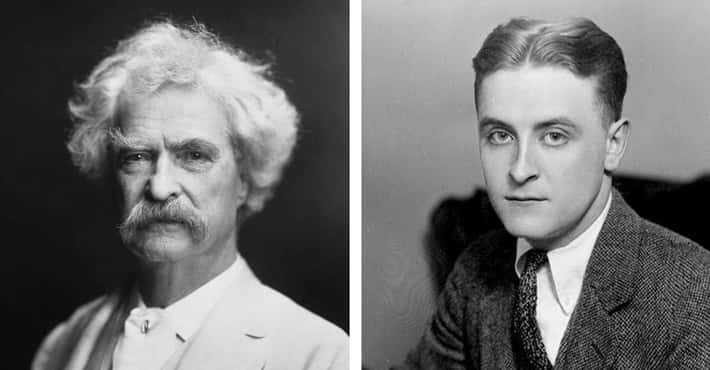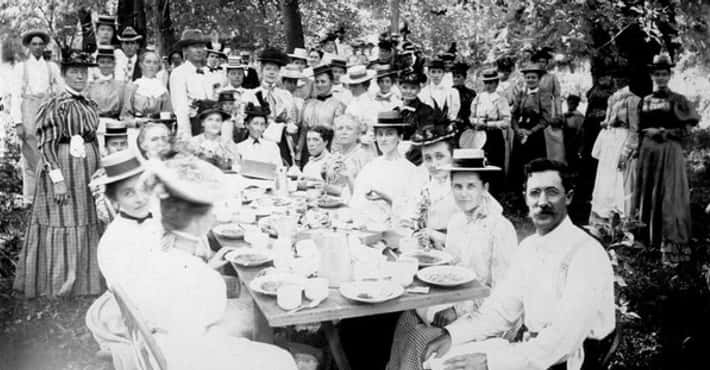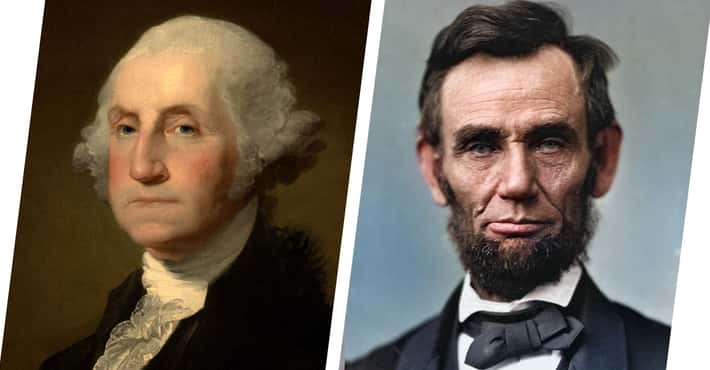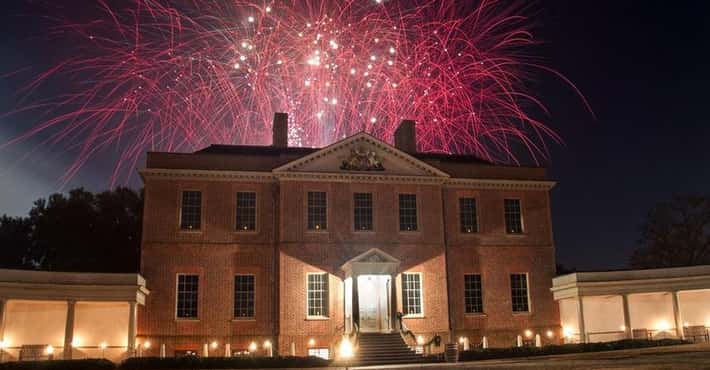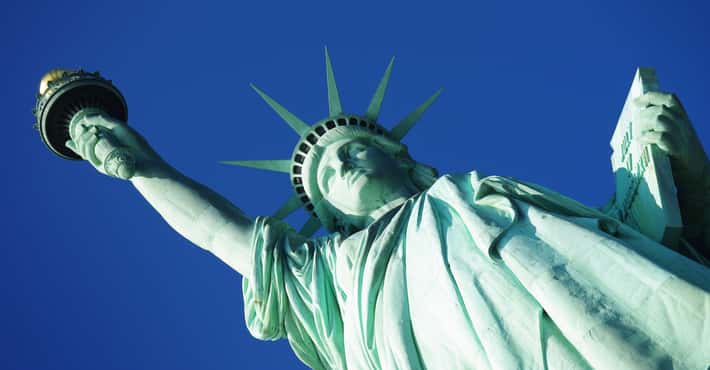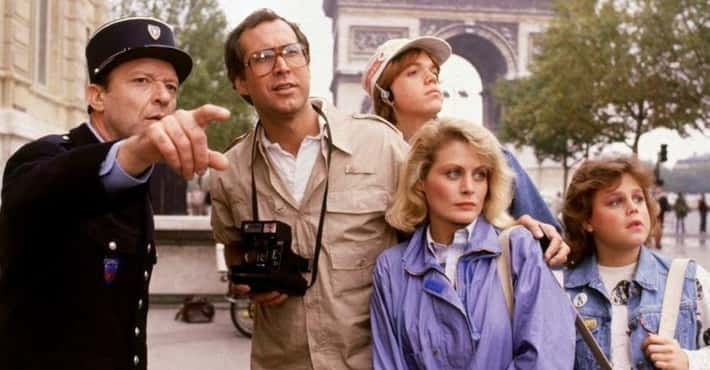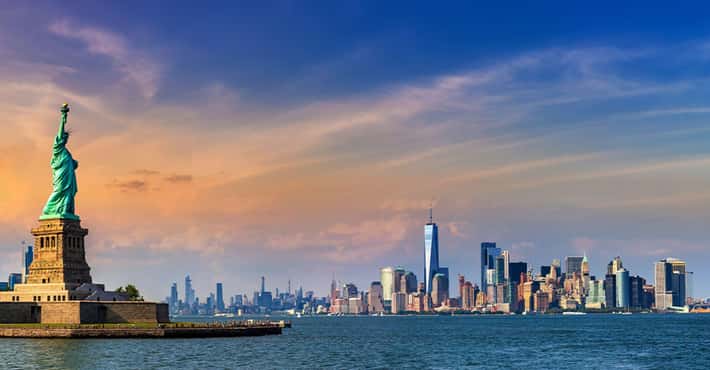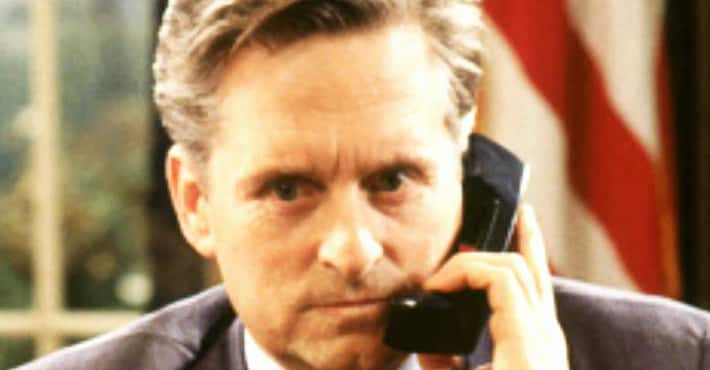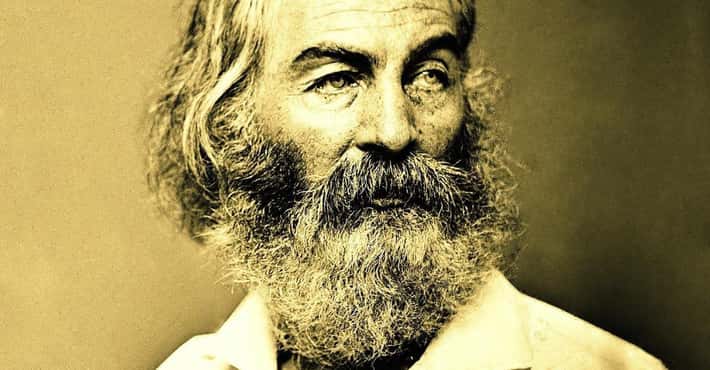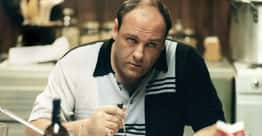The Top 100 Most Influential Men/Women in American History
Ranked By
83.4K votes
5.1K voters
6 reranks
Voting Rules
most influential men and women in american history, even if not born here
Simply put, America wouldn't be where it is today without the influential men and women who've led their lives for the better of those around them. From Rosa Parks to Alfred Hitchcock, each of these individuals pushed for progress in many regards, and because of them, America has come a very long way.
These influential men and women, and their stories, speak for themselves. So without further ado, check out the list of eminent people to follow. Don't forget to cast your vote up or down accordingly to help determine just who was the most influential.
- Photo: Gilbert Stuart / Wikimedia Commons / Public domain1696 VOTESGeorge Washington was the first President of the United States, the Commander-in-Chief of the Continental Army, and one of the Founding Fathers of the United States. He presided over the convention that drafted the United States Constitution, which replaced the Articles of Confederation and remains the supreme law of the land. Washington was unanimously elected President by the electors in both the 17881789 and 1792 elections.More George Washington
- Dig Deeper...Everything George Washington Ate On A Daily Basis As President
- #1 of 61 onThe Most Important Military Leaders In US History
- #13 of 3,183 onThe Most Influential People Of All Time
- Photo: Alexander Gardner / Wikimedia Commons / Public domain2591 VOTESAbraham Lincoln (February 12, 1809 – April 15, 1865) was an American statesman and lawyer who served as the 16th president of the United States from 1861 until his assassination in April 1865. Lincoln led the nation through the American Civil War, its bloodiest war and its greatest moral, constitutional, and political crisis. He preserved the Union, abolished slavery, strengthened the federal government, and modernized the U.S. economy. Born in Kentucky, Lincoln grew up on the frontier in a poor family. Self-educated, he became a lawyer, Whig Party leader, Illinois state legislator and Congressman. In 1849, he left government to resume his law practice, but angered by the success of Democrats in opening the prairie lands to slavery, reentered politics in 1854. He became a leader in the new Republican Party and gained national attention in 1858 for debating national Democratic leader Stephen A. Douglas in the 1858 Illinois Senate campaign. He then ran for President in 1860, sweeping the North and winning. Southern pro-slavery elements took his win as proof that the North was rejecting the constitutional rights of Southern states to practice slavery. They began the process of seceding from the union. To secure its independence, the new Confederate States of America fired on Fort Sumter, one of the few U.S. forts in the South. Lincoln called up volunteers and militia to suppress the rebellion and restore the Union. As the leader of the moderate faction of the Republican Party, Lincoln confronted Radical Republicans, who demanded harsher treatment of the South; War Democrats, who rallied a large faction of former opponents into his camp; anti-war Democrats (called Copperheads), who despised him; and irreconcilable secessionists, who plotted his assassination. Lincoln fought the factions by pitting them against each other, by carefully distributing political patronage, and by appealing to the American people. His Gettysburg Address became an iconic call for nationalism, republicanism, equal rights, liberty, and democracy. He suspended habeas corpus, and he averted British intervention by defusing the Trent Affair. Lincoln closely supervised the war effort, including the selection of generals and the naval blockade that shut down the South's trade. As the war progressed, he maneuvered to end slavery, issuing the Emancipation Proclamation of 1863; ordering the Army to protect escaped slaves, encouraging border states to outlaw slavery, and pushing through Congress the Thirteenth Amendment to the United States Constitution, which outlawed slavery across the country. Lincoln managed his own re-election campaign. He sought to reconcile his damaged nation by avoiding retribution against the secessionists. A few days after the Battle of Appomattox Court House, he was shot by John Wilkes Booth, an actor and Confederate sympathizer, on April 14, 1865, and died the following day. Abraham Lincoln is remembered as the United States' martyr hero. He is consistently ranked both by scholars and the public as among the greatest U.S. presidents.More Abraham Lincoln
- Dig Deeper...A Timeline Of The Hunt For John Wilkes Booth
- And Deeper...Famous People Who Were Murdered
- #6 of 3,183 onThe Most Influential People Of All Time
- Photo: Metaweb (FB) / Public domain3303 VOTESBenjamin Franklin was a Founding Father of the United States and a polymath with many talents and accomplishments. He was a leading author, printer, political theorist, politician, Freemason, postmaster, scientist, inventor, humorist, civic activist, statesman, and diplomat. He founded many civic organizations, including the Library Company, Philadelphia's first fire department, and the University of Pennsylvania. As a scientist, he made significant contributions to the American Enlightenment and the history of physics, particularly in the area of electricity. He invented the lightning rod, bifocals, and the Franklin stove, among other things. Franklin played an important role in defining the American ethos as a blend of practical values and scientific and tolerant values. He was instrumental in uniting the colonies and was the first United States Ambassador to France. He was a successful newspaper editor and author of Poor Richard's Almanack.More Benjamin Franklin
- Dig Deeper...19 Bizarre Facts About Benjamin Franklin, A Genius, A Founding Father, And A Delightful Weirdo
- And Deeper...Famous Bens
- #147 of 508 onThe 500+ Best Writers of All Time
- Photo: The U.S. National Archives / Flickr4784 VOTESMartin Luther King, Jr., an iconic figure in the American civil rights movement, was born on January 15, 1929, in Atlanta, Georgia. His father was a Baptist minister and his mother was a schoolteacher. Both instilled in him a strong sense of self-worth and faith. King's childhood was steeped in the African-American Baptist church community, shaping his world views and sowing the seeds of his future activism. Devoted to his studies, King graduated from Morehouse College in 1948 with a Bachelor of Arts degree in Sociology, later earning a Bachelor of Divinity from Crozer Theological Seminary in 1951 and a Ph.D. in Systematic Theology from Boston University in 1955. King's leadership in the Civil Rights Movement commenced with his involvement in the Montgomery bus boycott in 1955, sparked by Rosa Parks's refusal to give up her seat to a white passenger. As president of the Montgomery Improvement Association, King utilized the principles of nonviolent protest, inspired by Mahatma Gandhi's philosophy. His stirring speeches and peaceful protests brought national attention to the movement. During this period, King penned his famous "Letter from Birmingham Jail," a poignant defense of nonviolent resistance to racism. Martin Luther King, Jr.'s most famous moment came during the March on Washington for Jobs and Freedom in August 1963. Here he delivered his historic "I Have a Dream" speech, calling for an end to racism and envisioning a future where people would be judged by their character, not their skin color. King's relentless pursuit of equality earned him the Nobel Peace Prize in 1964. On April 4, 1968, King's life was tragically cut short when he was assassinated in Memphis, Tennessee. His legacy continues to inspire and influence social justice movements globally.
- Photo: Metaweb (FB) / Public domain5411 VOTESThomas Jefferson, one of the most influential Founding Fathers of the United States, was born on April 13, 1743, in Shadwell, Virginia. Raised in a well-to-do family with six sisters and one brother, he was afforded an excellent education, studying under notable figures like Reverend James Maury and William Small. His intellectual curiosity drove him to explore a wide variety of subjects, from philosophy and mathematics to horticulture and mechanics. This love for learning paved the way for his future roles as a statesman, architect, and inventor. Jefferson's political career began in earnest when he was elected to the Virginia House of Burgesses in 1769. He made his mark early on as a fervent advocate for colonial rights, gaining recognition for his articulate arguments against British taxation. However, it was his role in drafting the Declaration of Independence in 1776 that truly solidified his place in American history. As the primary author of this pivotal document, Jefferson articulated the fundamental principles that would guide the emerging nation, emphasizing the ideals of life, liberty, and the pursuit of happiness. Outside of politics, Jefferson was a man of many talents. He had a passion for architecture, designing his own home, Monticello, as well as the University of Virginia. His love for horticulture was evident in the extensive gardens he cultivated at Monticello, where he experimented with a variety of plants and crops. Moreover, as an inventor, he devised practical solutions to everyday problems, creating devices like the dumbwaiter and the plow moldboard of least resistance. Despite his many accomplishments, Jefferson remained a humble and dedicated public servant until his death on July 4, 1826. His enduring legacy continues to shape the American landscape, reflecting his profound impact on the nation's founding principles and cultural fabric.More Thomas Jefferson
- Dig Deeper...Meet The Family That Descended From Thomas Jefferson And Sally Hemings - His Slave
- And Deeper...250+ Famous Aries Celebrities
- #184 of 508 onThe 500+ Best Writers of All Time
- Photo: Metaweb (FB) / Public domain6267 VOTESBorn on January 11, 1755, on the island of Nevis in the British West Indies, Alexander Hamilton's life was a testament to the power of determination and intelligence. Despite facing numerous adversities early in his life, including being orphaned as a child, he managed to carve out an impressive career that significantly shaped the formation of the United States. Hamilton's intellect shone from a young age. Recognized by community leaders in Nevis for his potential, they pooled resources to send him to America for education. He attended King's College (now Columbia University) in New York City. During the American Revolution, Hamilton served as aide-de-camp to General George Washington, displaying exceptional strategic skills and administrative prowess. Post-war, Hamilton's influence further grew as a key contributor to the Federalist Papers, a series of essays advocating for the ratification of the Constitution. In 1789, he was appointed the first Secretary of the Treasury by President Washington, where he implemented financial systems that are still in place today. His vision of a strong central government and industrial economy often clashed with contemporaries like Thomas Jefferson, igniting debates that continue to resonate in American politics. Alexander Hamilton's legacy extends far beyond his untimely death in a duel against Aaron Burr in 1804; his foundational work in establishing modern American fiscal policy and constitutional interpretation leaves an indelible mark on the country's history.More Alexander Hamilton
- #67 of 3,183 onThe Most Influential People Of All Time
- #259 of 560 onPeople We Wish Were Still Alive
- #86 of 752 onThe Greatest Minds of All Time
- Photo: Pach Brothers / Wikimedia Commons / Public Domain7212 VOTESTheodore Roosevelt, the 26th President of the United States, was a man known for his energetic personality, range of interests, and achievements both before and during his presidency. Born on October 27, 1858, in New York City, he was plagued with health problems as a child. However, he overcame these challenges through sheer determination, fostering a lifelong love for physical fitness and outdoor pursuits. Roosevelt's political career began in the New York State Assembly, where he served from 1882 to 1884. He then went onto serve as the New York City Police Commissioner, Assistant Secretary of the Navy, Governor of New York, and Vice President under William McKinley. Following the assassination of McKinley in 1901, Roosevelt assumed the presidency, becoming the youngest person ever to hold the office at age 42. His presidency, which lasted until 1909, was marked by progressive policies, the construction of the Panama Canal, and winning the Nobel Peace Prize for mediating the Russo-Japanese War. Beyond politics, Roosevelt was also a prolific author, writing about subjects ranging from history and geography to nature and hunting. He was a dedicated conservationist, establishing numerous national parks, forests, and monuments to preserve America's natural resources and wildlife. After leaving the presidency, he embarked on numerous adventures, including a safari in Africa and an expedition in South America. A man truly larger than life, Roosevelt's legacy continues to resonate in American politics, literature, and environmental conservation.
- Photo: Library of Congress/Contributor / Corbis Historical/Getty Images8501 VOTESHenry Ford (July 30, 1863 – April 7, 1947) was an American industrialist and a business magnate, the founder of the Ford Motor Company, and the sponsor of the development of the assembly line technique of mass production. Although Ford did not invent the automobile or the assembly line, he developed and manufactured the first automobile that many middle-class Americans could afford. In doing so, Ford converted the automobile from an expensive curiosity into a practical conveyance that would profoundly impact the landscape of the 20th century. His introduction of the Model T automobile revolutionized transportation and American industry. As the owner of the Ford Motor Company, he became one of the richest and best-known people in the world. He is credited with "Fordism": mass production of inexpensive goods coupled with high wages for workers. Ford had a global vision, with consumerism as the key to peace. His intense commitment to systematically lowering costs resulted in many technical and business innovations, including a franchise system that put dealerships throughout most of North America and in major cities on six continents. Ford left most of his vast wealth to the Ford Foundation and arranged for his family to control the company permanently. Ford was also widely known for his pacifism during the first years of World War I, and for promoting antisemitic content, including The Protocols of the Elders of Zion, through his newspaper The Dearborn Independent and the book The International Jew, having an influence on the development of Nazism and Adolf Hitler.More Henry Ford
- Dig Deeper...320 Famous Leo Celebrities
- #24 of 3,183 onThe Most Influential People Of All Time
- #165 of 560 onPeople We Wish Were Still Alive
- Photo: John Vanderlyn / Wikimedia Commons / Public domain9128 VOTESJames Madison Jr. (March 16, 1751 – June 28, 1836) was an American statesman, lawyer, diplomat, philosopher, and Founding Father who served as the fourth president of the United States from 1809 to 1817. He is hailed as the "Father of the Constitution" for his pivotal role in drafting and promoting the Constitution of the United States and the United States Bill of Rights. He also co-wrote The Federalist Papers, co-founded the Democratic-Republican Party, and served as the fifth United States secretary of State from 1801 to 1809. Born into a prominent Virginia planter family, Madison served as a member of the Virginia House of Delegates and the Continental Congress during and after the American Revolutionary War. He became dissatisfied with the weak national government established by the Articles of Confederation and helped organize the Constitutional Convention, which produced a new constitution to supplant the Articles of Confederation. Madison's Virginia Plan served as the basis for the Constitutional Convention's deliberations, and he was one of the most influential individuals at the convention. Madison became one of the leaders in the movement to ratify the Constitution, and he joined with Alexander Hamilton and John Jay in writing The Federalist Papers, a series of pro-ratification essays that is widely considered to be one of the most influential works of political science in American history. After the ratification of the Constitution, Madison emerged as an important leader in the United States House of Representatives and served as a close adviser to President George Washington. He was the main force behind the ratification of the United States Bill of Rights, which enshrines guarantees of personal freedoms and rights within the Constitution. During the early 1790s, Madison came to oppose the economic program and accompanying centralization of power favored by Secretary of the Treasury Alexander Hamilton. Along with Thomas Jefferson, Madison organized the Democratic-Republican Party, which was, alongside Hamilton's Federalist Party, one of the nation's first major political parties. After Jefferson won the 1800 presidential election, Madison served as secretary of State from 1801 to 1809. In that position, he supervised the Louisiana Purchase, which doubled the size of the United States. Madison succeeded Jefferson with a victory in the 1808 presidential election. After diplomatic protests and a trade embargo failed to end British attacks against American shipping, he led the United States into the War of 1812. The war was an administrative morass and ended inconclusively, but many Americans saw it as a successful "second war of independence" against Britain. The war convinced Madison of the necessity of a stronger federal government, and he presided over the creation of the Second Bank of the United States and the enactment of the protective Tariff of 1816. He retired from public office in 1817 and died in 1836. Madison is considered to be one of the most important Founding Fathers of the United States, and historians have generally ranked him as an above-average president.More James Madison
- #128 of 3,183 onThe Most Influential People Of All Time
- #36 of 44 onEvery President's Most Controversial Pardon, Ranked
- #290 of 560 onPeople We Wish Were Still Alive
- Photo: Asher Brown Durand / Wikimedia Commons / Public domain10266 VOTESJohn Adams Jr. (October 30, 1735 – July 4, 1826) was an American statesman, attorney, diplomat, writer, and Founding Father who served as the second president of the United States from 1797 to 1801. Before his presidency, he was a leader of the American Revolution that achieved independence from Great Britain and served as the first vice president of the United States. Adams was a dedicated diarist and regularly corresponded with many important figures in early American history, including his wife and adviser, Abigail. His letters and other papers serve as an important source of historical information about the era. A lawyer and political activist prior to the revolution, Adams was devoted to the right to counsel and presumption of innocence. He defied anti-British sentiment and successfully defended British soldiers against murder charges arising from the Boston Massacre. Adams was a Massachusetts delegate to the Continental Congress and became a principal leader of the Revolution. He assisted in drafting the Declaration of Independence in 1776 and was its foremost advocate in Congress. As a diplomat in Europe, he helped negotiate the peace treaty with Great Britain and secured vital governmental loans. Adams was the primary author of the Massachusetts Constitution in 1780, which influenced the United States' own constitution, as did his earlier Thoughts on Government. Adams was elected to two terms as vice president under President George Washington and was elected as the United States' second president in 1796. During his single term, Adams encountered fierce criticism from the Jeffersonian Republicans and from some in his own Federalist Party, led by his rival Alexander Hamilton. Adams signed the controversial Alien and Sedition Acts and built up the Army and Navy in the undeclared "Quasi-War" with France. The main accomplishment of his presidency was a peaceful resolution of this conflict in the face of public anger and Hamilton's opposition. During his term, he became the first president to reside in the executive mansion now known as the White House. In his bid for reelection, opposition from Federalists and accusations of despotism from Republicans led to Adams's loss to his former friend Thomas Jefferson, and he retired to Massachusetts. He eventually resumed his friendship with Jefferson by initiating a correspondence that lasted fourteen years. He and his wife generated a family of politicians, diplomats, and historians now referred to as the Adams political family, which includes their son John Quincy Adams, the sixth president of the United States. John Adams died on July 4, 1826 – the fiftieth anniversary of the adoption of the Declaration of Independence – hours after Jefferson's death. Surveys of historians and scholars have favorably ranked his administration.More John Adams
- #112 of 3,183 onThe Most Influential People Of All Time
- #294 of 560 onPeople We Wish Were Still Alive
- #37 of 44 onEvery President's Most Controversial Pardon, Ranked
- Photo: Metaweb (FB) / Public domain11229 VOTESUlysses S. Grant (born Hiram Ulysses Grant; April 27, 1822 – July 23, 1885) was an American soldier, politician, and international statesman who served as the 18th president of the United States from 1869 to 1877. During the American Civil War, General Grant, with President Abraham Lincoln, led the Union Army to victory over the Confederacy. During the Reconstruction Era, President Grant led the Republicans in their efforts to remove the vestiges of Confederate nationalism, racism, and slavery. From early childhood in Ohio, Grant was a skilled equestrian who had a talent for taming horses. He graduated from West Point in 1843 and served with distinction in the Mexican–American War. Upon his return, Grant married Julia Dent, and together they had four children. In 1854, Grant abruptly resigned from the army. He and his family struggled financially in civilian life for seven years. When the Civil War broke out in 1861, Grant joined the Union Army and rapidly rose in rank to general. Grant was persistent in his pursuit of the Confederate enemy, winning major battles and gaining Union control of the Mississippi River. In March 1864, President Lincoln promoted Grant to Lieutenant General, a rank previously reserved for George Washington. For over a year Grant's Army of the Potomac fought the Army of Northern Virginia led by Robert E. Lee in the Overland Campaign and at Petersburg. On April 9, 1865, Lee surrendered to Grant at Appomattox, and the war ended. On April 14, 1865, Lincoln was assassinated. Grant continued his service under Lincoln's successor President Andrew Johnson and was promoted General of the Army in 1866. Disillusioned by Johnson's conservative approach to Reconstruction, and the pro-slavery Democrats in the South, Grant drifted toward the "Radical" Republicans. Elected the youngest 19th Century president in 1868, Grant stabilized the post-war national economy, created the Department of Justice, and prosecuted the Ku Klux Klan. He appointed African-Americans and Jewish-Americans to prominent federal offices. In 1871, Grant created the first Civil Service Commission. The Democrats and Liberal Republicans united behind Grant's opponent in the presidential election of 1872, but Grant was handily re-elected. Grant's new Peace Policy for Native Americans had both successes and failures. Grant's administration successfully resolved the Alabama claims and the Virginius Affair, but Congress rejected his Dominican annexation initiative. Grant's presidency was plagued by numerous public scandals, while the Panic of 1873 plunged the nation into a severe economic depression. After Grant left office in March 1877, he embarked on a two-and-a-half-year world tour that captured favorable global attention for him and the United States. In 1880, Grant was unsuccessful in obtaining the Republican presidential nomination for a third term. In the final year of his life, facing severe investment reversals and dying of throat cancer, he wrote his memoirs, which proved to be a major critical and financial success. At the time of his death, he was memorialized as a symbol of national unity. Historical assessments of Grant's legacy have varied considerably over the years. Historians have hailed Grant's military genius, and his strategies are featured in military history textbooks. Stigmatized by multiple scandals, Grant's presidency ranked among the worst in 20th-century surveys of scholars. Modern scholars have shown greater appreciation for his achievements that included civil rights enforcement and have raised his historical reputation. Grant has been regarded as an embattled president who performed a difficult job during Reconstruction.More Ulysses S. Grant
- Dig Deeper...335+ Famous Taurus Historical Figures
- #2 of 61 onThe Most Important Military Leaders In US History
- #234 of 3,183 onThe Most Influential People Of All Time
- Photo: Elias Goldensky / Wikimedia Commons / Public domain12200 VOTESFranklin Delano Roosevelt, fondly known as FDR, was a man of fortitude and resilience who served as the 32nd President of the United States from 1933 until his death in 1945. Born on January 30, 1882, in Hyde Park, New York, Roosevelt hailed from an affluent background, providing him with educational opportunities that honed his leadership skills early on. He graduated from Harvard University in 1903 and later attended Columbia Law School. His political career began when he was elected as a state senator in New York in 1910, marking the beginning of a journey that would lead him to the presidential office. Roosevelt's presidency was marked by two significant periods in American history: the Great Depression and World War II. Following his inauguration in 1933, amid the crippling economic crisis, Roosevelt implemented the New Deal, a set of social and economic reforms that aimed to stabilize the economy and provide jobs for the unemployed. His leadership during this era is celebrated for steering the nation towards recovery. Just as the country was emerging from the Depression, it was plunged into World War II following the attack on Pearl Harbor. As Commander-in-Chief, Roosevelt led the nation with unwavering resolve, forming alliances and mobilizing the industrial sector to support the war effort. Despite being diagnosed with polio in 1921, which left him wheelchair-bound, Roosevelt did not let his physical limitations deter his desire to serve his country. His disability only fueled his determination, making him a symbol of courage and resilience. Roosevelt's legacy is not merely his policies or achievements, but his ability to inspire hope during some of the most challenging times in American history. His life serves as a testament to his famous words, "The only thing we have to fear is fear itself." In his twelve years as President, Roosevelt transformed the face of American politics and left an indelible mark on its history.
- #51 of 3,183 onThe Most Influential People Of All Time
- #175 of 560 onPeople We Wish Were Still Alive
- #42 of 44 onEvery President's Most Controversial Pardon, Ranked
- Photo: uploaded by Douglas Reed13423 VOTESJohn Davison Rockefeller Sr. (July 8, 1839 – May 23, 1937) was an American business magnate and philanthropist. He is widely considered the wealthiest American of all time, and the richest person in modern history.Rockefeller was born into a large family in upstate New York and was shaped by his con man father and religious mother. His family moved several times before eventually settling in Cleveland, Ohio. Rockefeller became an assistant bookkeeper at age 16 and went into several business partnerships beginning at age 20, concentrating his business on oil refining. Rockefeller founded the Standard Oil Company in 1870. He ran it until 1897, and remained its largest shareholder. Rockefeller's wealth soared as kerosene and gasoline grew in importance, and he became the richest person in the country, controlling 90% of all oil in the United States at his peak. Oil was used throughout the country as a light source until the introduction of electricity, and as a fuel after the invention of the automobile. Furthermore, Rockefeller gained enormous influence over the railroad industry which transported his oil around the country. Standard Oil was the first great business trust in the United States. Rockefeller revolutionized the petroleum industry. His company and business practices came under criticism, particularly in the writings of author Ida Tarbell. The Supreme Court ruled in 1911 that Standard Oil must be dismantled for violation of federal antitrust laws. It was broken up into 34 separate entities which included companies that became ExxonMobil, Chevron Corporation, and others—some of which still have the highest level of revenue in the world. Individual pieces of the company were worth more than the whole, as shares of these doubled and tripled in value in their early years, and Rockefeller became the country's first billionaire with a fortune worth nearly 2% of the national economy. His peak net worth was estimated at US$409 billion (in 2018 dollars; inflation-adjusted) in 1913. The 409 billion figure assumes a 2% share of US GDP in 2016. His personal wealth, 900 million in 1913, more than 2% of US GDP of 39.1 billion that year was worth 21 billion dollars in 2016 adjusted for inflation (by 1937 the Rockefeller fortune was 1.4 billion or 1.5% of GDP of 92 billion).Rockefeller spent much of the last 40 years of his life in retirement at his estate in Westchester County, New York, defining the structure of modern philanthropy, along with other key industrialists such as steel magnate Andrew Carnegie. His fortune was mainly used to create the modern systematic approach of targeted philanthropy through the creation of foundations that had a major effect on medicine, education, and scientific research. His foundations pioneered the development of medical research and were instrumental in the near-eradication of hookworm and yellow fever in the United States. Rockefeller was also the founder of the University of Chicago and Rockefeller University and funded the establishment of Central Philippine University in the Philippines. He was a devout Northern Baptist and supported many church-based institutions. He adhered to total abstinence from alcohol and tobacco throughout his life. For advice, he relied closely on his wife Laura Spelman Rockefeller with whom he had five children. He was a faithful congregant of the Erie Street Baptist Mission Church, taught Sunday school, and served as a trustee, clerk, and occasional janitor. Religion was a guiding force throughout his life and he believed it to be the source of his success. Rockefeller was also considered a supporter of capitalism based on a perspective of social Darwinism, and he was quoted often as saying, "The growth of a large business is merely a survival of the fittest".More John D. Rockefeller
- Dig Deeper...345 Famous Cancer Celebrities
- #122 of 3,183 onThe Most Influential People Of All Time
- #3 of 57 onThe Most Influential CEOs Of All Time
- Photo: Metaweb (FB) / Public domain14766 VOTESRosa Louise McCauley Parks (February 4, 1913 – October 24, 2005) was an American activist in the civil rights movement best known for her pivotal role in the Montgomery bus boycott. The United States Congress has called her "the first lady of civil rights" and "the mother of the freedom movement".On December 1, 1955, in Montgomery, Alabama, Parks rejected bus driver James F. Blake's order to relinquish her seat in the "colored section" to a white passenger, after the whites-only section was filled. Parks was not the first person to resist bus segregation, but the National Association for the Advancement of Colored People (NAACP) believed that she was the best candidate for seeing through a court challenge after her arrest for civil disobedience in violating Alabama segregation laws. Parks' prominence in the community and her willingness to become a controversial figure inspired the black community to boycott the Montgomery buses for over a year, the first major direct action campaign of the post-war civil rights movement. Her case became bogged down in the state courts, but the federal Montgomery bus lawsuit Browder v. Gayle succeeded in November 1956.Parks' act of defiance and the Montgomery bus boycott became important symbols of the movement. She became an international icon of resistance to racial segregation. She organized and collaborated with civil rights leaders, including Edgar Nixon, president of the local chapter of the NAACP; and Martin Luther King, Jr., a new minister in Montgomery who gained national prominence in the civil rights movement and went on to win a Nobel Peace Prize. At the time, Parks was secretary of the Montgomery chapter of the NAACP. She had recently attended the Highlander Folk School, a Tennessee center for training activists for workers' rights and racial equality. She acted as a private citizen "tired of giving in". Although widely honored in later years, she also suffered for her act; she was fired from her job as a seamstress in a local department store, and received death threats for years afterwards.Shortly after the boycott, she moved to Detroit, where she briefly found similar work. From 1965 to 1988 she served as secretary and receptionist to John Conyers, an African-American US Representative. She was also active in the Black Power movement and the support of political prisoners in the US. After retirement, Parks wrote her autobiography and continued to insist that the struggle for justice was not over and there was more work to be done. In her final years, she suffered from dementia. Parks received national recognition, including the NAACP's 1979 Spingarn Medal, the Presidential Medal of Freedom, the Congressional Gold Medal, and a posthumous statue in the United States Capitol's National Statuary Hall. Upon her death in 2005, she was the first woman to lie in honor in the Capitol Rotunda, becoming the third of only four Americans to ever receive this honor. California and Missouri commemorate Rosa Parks Day on her birthday February 4, while Ohio and Oregon commemorate the occasion on the anniversary of the day she was arrested, December 1.More Rosa Parks
- #88 of 3,183 onThe Most Influential People Of All Time
- #34 of 180 onThe Most Inspiring (Non-Hollywood) Female Role Models
- #108 of 560 onPeople We Wish Were Still Alive
- Photo: Metaweb (FB) / Public domain15261 VOTES
Orville Wright
Orville Wright, 1871 - 1948 Orville Wright was born in 1871 in Dayton, Ohio. He is less well known than his older brother, Wilbur, but had as much influence in the creation of the first airplane as did his brother. - Photo: flickr / CC016299 VOTESJohn Pierpont Morgan Sr. (April 17, 1837 – March 31, 1913) was an American financier and banker who dominated corporate finance on Wall Street throughout the Gilded Age. As the head of the banking firm that became known as J.P. Morgan and Co., he played a central role in the wave of industrial consolidation during the late 19th and early 20th century. In 1892, Morgan arranged the merger of Edison General Electric and Thomson-Houston Electric Company to form General Electric. He also played important roles in the formation of the United States Steel Corporation, International Harvester and AT&T. At the height of Morgan's career during the early twentieth century, he and his partners had financial investments in many large corporations and had significant influence over the nation's high finance and United States Congress members. He directed the banking coalition that stopped the Panic of 1907. He was the leading financier of the Progressive Era, and his dedication to efficiency and modernization helped transform American business. Adrian Wooldridge characterized Morgan as America's "greatest banker".Morgan died in Rome, Italy, in his sleep in 1913 at the age of 75, leaving his fortune and business to his son, John Pierpont Morgan Jr. Biographer Ron Chernow estimated his fortune at only $118 million (of which approximately $50 million was attributed to his vast art collection), a net worth which allegedly prompted John D. Rockefeller to say: "and to think, he wasn't even a rich man."
- 17180 VOTESJackie Robinson, born on January 31, 1919, in Cairo, Georgia, was an American professional baseball player who became a towering figure in the history of sports. He broke the color line in Major League Baseball when he started at first base for the Brooklyn Dodgers on April 15, 1947, becoming the first African American to play in the major leagues in the 20th century. His courage and determination in facing extreme adversity and racial discrimination were not only groundbreaking but also instrumental in paving the way for other athletes of color. Robinson's early life was characterized by hardship and perseverance. After his father left the family, his mother moved them to Pasadena, California, where Robinson excelled in various sports during his school years. Despite the racial barriers he faced, Robinson attended Pasadena Junior College and later transferred to UCLA, where he became the first student to win varsity letters in four sports: baseball, basketball, football, and track. However, his college career was cut short due to financial difficulties. Robinson's professional career was marked by exceptional talent and tenacity. He played in six World Series and contributed to the Dodger's World Series victory in 1955. His athletic talents earned him numerous accolades, including Rookie of the Year in 1947, National League MVP in 1949, and six consecutive selections to the All-Star Games from 1949 to 1954. Off the field, he used his platform to advocate for civil rights, becoming a symbol of racial integration and progress. He continued to champion equality after retiring from baseball, serving as an executive for the Chock Full O'Nuts corporation and using his influence to establish the Freedom National Bank, an African-American owned financial institution based in Harlem, New York. Jackie Robinson passed away on October 24, 1972, leaving behind a legacy that continues to inspire generations.More Jackie Robinson
- #13 of 388 onThe Greatest Baseball Players Of All Time
- #25 of 372 onThe Best Hitters in Baseball History
- #1642 of 3,183 onThe Most Influential People Of All Time
- Photo: Metaweb (FB) / Public domain18245 VOTESSusan B. Anthony (February 15, 1820 – March 13, 1906) was an American social reformer and women's rights activist who played a pivotal role in the women's suffrage movement. Born into a Quaker family committed to social equality, she collected anti-slavery petitions at the age of 17. In 1856, she became the New York state agent for the American Anti-Slavery Society. In 1851, she met Elizabeth Cady Stanton, who became her lifelong friend and co-worker in social reform activities, primarily in the field of women's rights. In 1852, they founded the New York Women's State Temperance Society after Anthony was prevented from speaking at a temperance conference because she was female. In 1863, they founded the Women's Loyal National League, which conducted the largest petition drive in United States history up to that time, collecting nearly 400,000 signatures in support of the abolition of slavery. In 1866, they initiated the American Equal Rights Association, which campaigned for equal rights for both women and African Americans. In 1868, they began publishing a women's rights newspaper called The Revolution. In 1869, they founded the National Woman Suffrage Association as part of a split in the women's movement. In 1890, the split was formally healed when their organization merged with the rival American Woman Suffrage Association to form the National American Woman Suffrage Association, with Anthony as its key force. In 1876, Anthony and Stanton began working with Matilda Joslyn Gage on what eventually grew into the six-volume History of Woman Suffrage. The interests of Anthony and Stanton diverged somewhat in later years, but the two remained close friends. In 1872, Anthony was arrested for voting in her hometown of Rochester, New York, and convicted in a widely publicized trial. Although she refused to pay the fine, the authorities declined to take further action. In 1878, Anthony and Stanton arranged for Congress to be presented with an amendment giving women the right to vote. Introduced by Sen. Aaron A. Sargent (R-CA), it later became known colloquially as the Susan B. Anthony Amendment. It was ratified as the Nineteenth Amendment to the U.S. Constitution in 1920. Anthony traveled extensively in support of women's suffrage, giving as many as 75 to 100 speeches per year and working on many state campaigns. She worked internationally for women's rights, playing a key role in creating the International Council of Women, which is still active. She also helped to bring about the World's Congress of Representative Women at the World's Columbian Exposition in Chicago in 1893. When she first began campaigning for women's rights, Anthony was harshly ridiculed and accused of trying to destroy the institution of marriage. Public perception of her changed radically during her lifetime, however. Her 80th birthday was celebrated in the White House at the invitation of President William McKinley. She became the first female citizen to be depicted on U.S. coinage when her portrait appeared on the 1979 dollar coin.More Susan B. Anthony
- 19144 VOTESElvis Presley, often referred to as the King of Rock and Roll, was an iconic figure in 20th-century music. Born in Tupelo, Mississippi on January 8, 1935, his profound influence on popular culture stemmed from his unique blend of country music with rhythm and blues. This fusion resulted in a fresh sound that launched him to worldwide fame. Presley's career took off when he signed with Sun Records label in Memphis. His debut single That's All Right released in 1954 was a major hit which set the stage for a string of successful albums including Blue Hawaii, Jailhouse Rock and Love Me Tender. By the late 1950s, Elvis had become one of America's biggest stars not just musically but also cinematically; starring in multiple box-office hits like Love Me Tender and Viva Las Vegas. Despite facing criticism for his provocative style and gyrating performances, Presley continued to break barriers within the music industry. He holds numerous records including most songs charting in Billboard Top 40 and being the best-selling solo artist ever. Elvis Presley passed away at Graceland, his home estate located in Memphis, on August 16th,1977 leaving behind a legacy that continues to inspire musicians around the world.More Elvis Presley
- Dig Deeper...13 Conspiracy Theories About Elvis Being Alive That People Still Believe
- And Deeper...The Best Elvis Presley Songs Of All Time
- And Deeper...Musicians You May Not Know Are Republican
- Photo: Metaweb (FB) / Public domain20109 VOTESPatrick Henry (May 29, 1736 – June 6, 1799) was an American attorney, planter, and orator best known for his declaration to the Second Virginia Convention (1775): "Give me liberty, or give me death!" A Founding Father, he served as the first and sixth post-colonial Governor of Virginia, from 1776 to 1779 and from 1784 to 1786. Henry was born in Hanover County, Virginia, and was for the most part educated at home. After an unsuccessful venture running a store, and assisting his father-in-law at Hanover Tavern, Henry became a lawyer through self-study. Beginning his practice in 1760, he soon became prominent through his victory in the Parson's Cause against the Anglican clergy. Henry was elected to the Virginia House of Burgesses, where he quickly became notable for his inflammatory rhetoric against the Stamp Act of 1765. In 1774 and 1775, Henry served as a delegate to the First and Second Continental Congresses, but did not prove particularly influential. He gained further popularity among the people of Virginia, both through his oratory at the convention and by marching troops towards the colonial capital of Williamsburg after the Gunpowder Incident until the munitions seized by the royal government were paid for. Henry urged independence, and when the Fifth Virginia Convention endorsed this in 1776, served on the committee charged with drafting the Virginia Declaration of Rights and the original Virginia Constitution. Henry was promptly elected governor under the new charter, and served a total of five one-year terms. After leaving the governorship in 1779, Henry served in the Virginia House of Delegates until he began his last two terms as governor in 1784. The actions of the national government under the Articles of Confederation made Henry fear a strong federal government and he declined appointment as a delegate to the 1787 Constitutional Convention. He actively opposed the ratification of the Constitution. He returned to the practice of law in his final years, declining several offices under the federal government. A slaveholder throughout his adult life, he hoped to see the institution end, but had no plan for that beyond ending the importation of slaves. Henry is remembered for his oratory, and as an enthusiastic promoter of the fight for independence.More Patrick Henry
- Dig Deeper...The 365+ Most Famous Geminis
- #1476 of 3,183 onThe Most Influential People Of All Time
- #475 of 560 onPeople We Wish Were Still Alive
- Photo: Metaweb (FB)21139 VOTESJohn F. Kennedy, often referred to by his initials JFK, was a significant figure in the annals of American history. Born on May 29, 1917, in Brookline, Massachusetts, he was the second of nine children from the politically influential Kennedy family. His early education took place in elite institutions, culminating with a Bachelor of Arts in Government from Harvard University in 1940. Kennedy's early life was not only marked by academic pursuits but was also filled with health struggles, including a near-fatal case of Addison's disease. Kennedy's political career began in earnest after World War II. In 1946, he was elected to the U.S. House of Representatives, representing Massachusetts's 11th Congressional district. After serving three terms, he successfully ran for Senate in 1952. His tenure as a Senator was notable for his advocacy on labor issues and his foreign policy stances, particularly regarding Vietnam. However, it was the 1960 Presidential election that truly thrust Kennedy into the global spotlight. At the age of 43, he became the youngest person ever elected to the presidency and the first Catholic to hold the office. Kennedy's presidency, though brief, was momentous. He navigated the country through some of the most intense moments of the Cold War, including the Cuban Missile Crisis. His administration also saw the initiation of the Peace Corps, the launch of the Apollo space program, and significant strides in civil rights. Tragically, Kennedy's presidency was cut short when he was assassinated on November 22, 1963, in Dallas, Texas. Despite his short time in office, Kennedy's charismatic leadership, compelling speeches, and forward-thinking policies have ensured his enduring legacy in American history.More John F. Kennedy
- Dig Deeper...What Happened Immediately After JFK Was Assassinated?
- And Deeper...The 365+ Most Famous Geminis
- #87 of 227 onThe Most Trustworthy Celebrities In The World
- Photo: Metaweb (FB) / Public domain22171 VOTESClarissa Harlowe Barton (December 25, 1821 – April 12, 1912) was a pioneering American nurse who founded the American Red Cross. She was a hospital nurse in the American Civil War, a teacher, and patent clerk. Nursing education was not very formalized at that time and she did not attend nursing school, so she provided self-taught nursing care. Barton is noteworthy for doing humanitarian work and civil rights advocacy at a time before women had the right to vote. She was inducted into the National Women's Hall of Fame in 1973.
- Photo: Metaweb (FB) / CC-BY-2.523190 VOTESRegarded as a paragon of innovation and a visionary, Steve Jobs was born on February 24, 1955, in San Francisco, California. Adopted by Paul and Clara Jobs, he grew up in Mountain View, California, an area that would later become known as Silicon Valley. His early years were marked by an intense curiosity and passion for technology, which was nurtured by his father's guidance in their garage. A college dropout, Jobs attended Reed College in Portland, Oregon, before embarking on a life-changing trip to India seeking spiritual enlightenment. Upon his return, Jobs co-founded Apple Inc. with Steve Wozniak in 1976, launching the first Apple computer from the Jobs family garage. The venture marked the dawn of the personal computing era, revolutionizing the industry. However, Jobs faced significant setbacks. In 1985, following internal disagreements, he left Apple to establish NeXT, a computer platform development company specializing in the higher education and business markets. In a twist of fate, Apple purchased NeXT in 1997, bringing Jobs back into the fold. Under his renewed leadership, Apple made a dramatic turnaround, introducing iconic products like the iMac, iPod, iPhone, and iPad. These innovations transformed not only the technology industry but also music, entertainment, and design, turning Apple into a global powerhouse. Despite facing health challenges, Jobs remained at the helm of Apple until his resignation in August 2011. His passing on October 5, 2011, marked the end of a revolutionary era in technology. His legacy continues to inspire future generations of entrepreneurs and innovators.More Steve Jobs
- Dig Deeper...28 Things You Didn't Know About Steve Jobs
- And Deeper...How Steve Jobs And Bill Gates Went From Friends To Bitter Enemies
- #47 of 3,183 onThe Most Influential People Of All Time
- Photo: Metaweb (FB) / Public domain24162 VOTESSamuel Finley Breese Morse (April 27, 1791 – April 2, 1872) was an American painter and inventor. After having established his reputation as a portrait painter, in his middle age Morse contributed to the invention of a single-wire telegraph system based on European telegraphs. He was a co-developer of Morse code and helped to develop the commercial use of telegraphy.More Samuel Morse
- Dig Deeper...335+ Famous Taurus Historical Figures
- #74 of 3,183 onThe Most Influential People Of All Time
- #7 of 20 onFacts About Historical Figures We Learned That Made Us Say 'Really?'
- Photo: Metaweb (FB) / Public domain25153 VOTESWilbur Wright (April 16, 1867 – May 30, 1912) was the older of the two Wright brothers (the other being Orville), two Americans credited with inventing and building the world's first successful airplane and making the first controlled, powered and sustained heavier-than-air human flight, on December 17, 1903.More Wilbur Wright
- #116 of 3,183 onThe Most Influential People Of All Time
- #332 of 560 onPeople We Wish Were Still Alive
- #14 of 64 onWho Is The Most Famous Wright In The World?
- Photo: Metaweb (FB) / Public domain26113 VOTESEli Whitney (December 8, 1765 – January 8, 1825) was an American inventor best known for inventing the cotton gin. This was one of the key inventions of the Industrial Revolution and shaped the economy of the Antebellum South. Whitney's invention made upland short cotton into a profitable crop, which strengthened the economic foundation of slavery in the United States. Despite the social and economic impact of his invention, Whitney lost many profits in legal battles over patent infringement for the cotton gin. Thereafter, he turned his attention into securing contracts with the government in the manufacture of muskets for the newly formed United States Army. He continued making arms and inventing until his death in 1825.More Eli Whitney
- #1420 of 3,183 onThe Most Influential People Of All Time
- #11 of 20 on20 Things People Had Achieved by Age 30
- #6 of 49 onWho Is The Most Famous Eli In The World?
- Photo: Metaweb (FB) / Public domain27153 VOTESPaul Revere (; December 21, 1734 O.S. (January 1, 1735 N.S.) – May 10, 1818) was an American silversmith, engraver, early industrialist, and Patriot in the American Revolution. He is best known for his midnight ride to alert the colonial militia in April 1775 to the approach of British forces before the battles of Lexington and Concord, as dramatized in Henry Wadsworth Longfellow's poem, "Paul Revere's Ride" (1861). At age 41, Revere was a prosperous, established and prominent Boston silversmith. He had helped organize an intelligence and alarm system to keep watch on the British military. Revere later served as a Massachusetts militia officer, though his service ended after the Penobscot Expedition, one of the most disastrous campaigns of the American Revolutionary War, for which he was absolved of blame. Following the war, Revere returned to his silversmith trade. He used the profits from his expanding business to finance his work in iron casting, bronze bell and cannon casting, and the forging of copper bolts and spikes. In 1800, he became the first American to successfully roll copper into sheets for use as sheathing on naval vessels.More Paul Revere
- Photo: Metaweb (FB) / Public domain28233 VOTESJames Monroe (; April 28, 1758 – July 4, 1831) was an American statesman, lawyer, diplomat and Founding Father who served as the fifth president of the United States from 1817 to 1825. A member of the Democratic-Republican Party, Monroe was the last president of the Virginia dynasty; his presidency coincided with the Era of Good Feelings. He is perhaps best known for issuing the Monroe Doctrine, a policy of opposing European colonialism in the Americas. He also served as the governor of Virginia, a member of the United States Senate, the U.S. ambassador to France and Britain, the seventh Secretary of State, and the eighth Secretary of War. Born into a planter family in Westmoreland County, Virginia, Monroe served in the Continental Army during the American Revolutionary War. After studying law under Thomas Jefferson from 1780 to 1783, he served as a delegate in the Continental Congress. As a delegate to the Virginia Ratifying Convention, Monroe opposed the ratification of the United States Constitution. In 1790, he won election to the Senate, where he became a leader of the Democratic-Republican Party. He left the Senate in 1794 to serve as President George Washington's ambassador to France, but was recalled by Washington in 1796. Monroe won election as Governor of Virginia in 1799 and strongly supported Jefferson's candidacy in the 1800 presidential election. As President Jefferson's special envoy, Monroe helped negotiate the Louisiana Purchase, through which the United States nearly doubled in size. Monroe fell out with his long-time friend, James Madison, after the latter rejected the Monroe–Pinkney Treaty that Monroe negotiated with Britain. He unsuccessfully challenged Madison in the 1808 presidential election, but in April 1811 he joined Madison's administration as Secretary of State. During the later stages of the War of 1812, Monroe simultaneously served as Madison's Secretary of State and Secretary of War. His war-time leadership established him as Madison's heir apparent, and he easily defeated Federalist Party candidate Rufus King in the 1816 presidential election. Monroe's presidency was coterminous with the Era of Good Feelings, as the Federalist Party collapsed as a national political force. As president, Monroe signed the Missouri Compromise, which admitted Missouri as a slave state and banned slavery from territories north of the parallel 36°30′ north. In foreign affairs, Monroe and Secretary of State John Quincy Adams favored a policy of conciliation with Britain and a policy of expansionism against the Spanish Empire. In the 1819 Adams–Onís Treaty with Spain, the United States secured Florida and established its western border with New Spain. In 1823, Monroe announced the United States' opposition to any European intervention in the recently independent countries of the Americas with the Monroe Doctrine, which became a landmark in American foreign policy. Monroe was a member of the American Colonization Society, which supported the colonization of Africa by freed slaves, and Liberia's capital of Monrovia is named in his honor. Following his retirement in 1825, Monroe was plagued by financial difficulties, and died on July 4, 1831 in New York City. He has been generally ranked as an above-average president by historians.More James Monroe
- Dig Deeper...75+ Famous People Buried in New York City
- And Deeper...335+ Famous Taurus Historical Figures
- #316 of 3,183 onThe Most Influential People Of All Time
- Photo: Metaweb (FB) / Public domain29103 VOTESHarry S. Truman, the 33rd president of the United States, was a man of humble Midwestern roots who made his mark on American history with his decisive leadership during pivotal moments of the 20th century. Born in Missouri in 1884, Truman's early life was steeped in the rural values of hard work and integrity, which would later shape his political ethos. An early career in farming and small-business ownership instilled in him a deep empathy for the struggles of everyday Americans, a trait that would remain central to his presidency. Truman's political career began with his election as a county judge in Missouri in 1922. His commitment to public service and astute political acumen caught the attention of the Democratic Party, propelling him to the U.S. Senate in 1935. In the Senate, Truman distinguished himself through his diligent investigation of war profiteering during World War II, laying the groundwork for his reputation as a tenacious advocate for transparency and accountability in government. In 1945, Truman ascended to the presidency following the death of Franklin D. Roosevelt. His tenure was marked by momentous decisions, from authorizing the use of atomic bombs on Japan to end World War II, to implementing the Marshall Plan for European economic recovery, to spearheading the creation of NATO. Despite facing numerous challenges, Truman remained steadfast in his dedication to the principles of democracy and freedom, leaving behind a legacy that has shaped the course of American and global history.More Harry S. Truman
- Dig Deeper...335+ Famous Taurus Historical Figures
- And Deeper...Left Handed Presidents
- #1193 of 3,183 onThe Most Influential People Of All Time
- Photo: Metaweb (FB) / Public domain30232 VOTESCornelius Vanderbilt (May 27, 1794 – January 4, 1877) was an American business magnate who built his wealth in railroads and shipping. After working with his father's business, Vanderbilt worked his way into leadership positions in the inland water trade and invested in the rapidly growing railroad industry. Nicknamed "The Commodore", he is known for owning the New York Central Railroad. His biographer T. J. Stiles says, "He vastly improved and expanded the nation's transportation infrastructure, contributing to a transformation of the very geography of the United States. He embraced new technologies and new forms of business organization, and used them to compete....He helped to create the corporate economy that would define the United States into the 21st century." As one of the richest Americans in history and wealthiest figures overall, Vanderbilt was the patriarch of the wealthy and influential Vanderbilt family. He provided the initial gift to found Vanderbilt University in Nashville, Tennessee. According to historian H. Roger Grant: "Contemporaries, too, often hated or feared Vanderbilt or at least considered him an unmannered brute. While Vanderbilt could be a rascal, combative and cunning, he was much more a builder than a wrecker [...] being honorable, shrewd, and hard-working."


